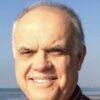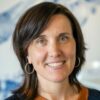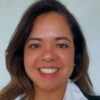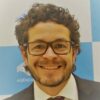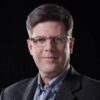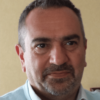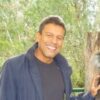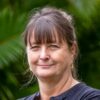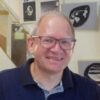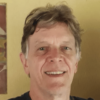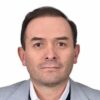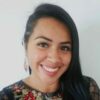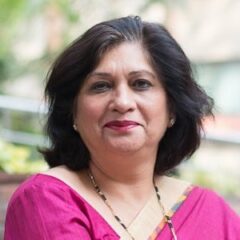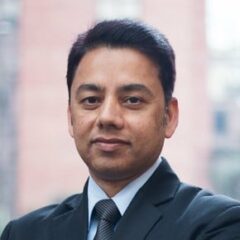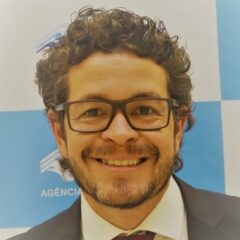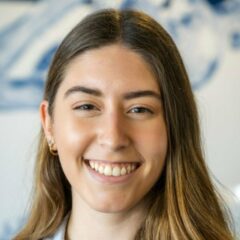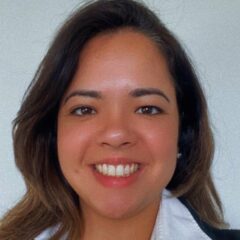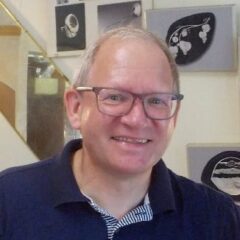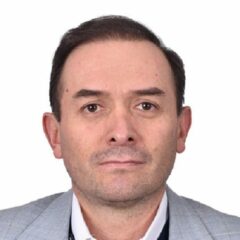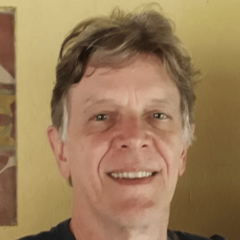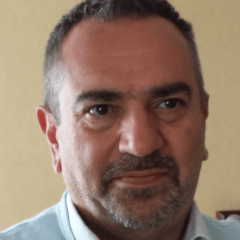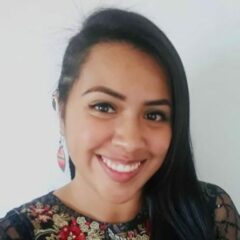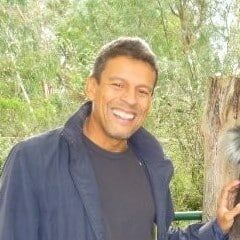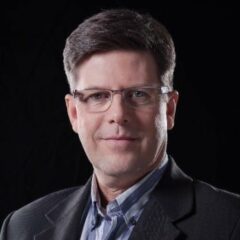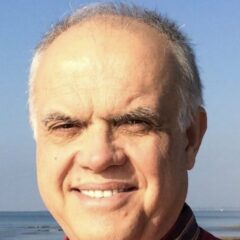WATER, SANITATION AND HYGIENE FOR ALL
Improve access to safe and clean water
Water is fundamental to the existence of all forms of life. Yet, according to figures from UN Water, 2.3 billion people still live in water-stressed countries, out of which 733 million live in high and critically water-stressed countries. Furthermore, the Food and Agriculture Organization of the United Nations estimates that 3.2 billion people live in agricultural areas with high to very high water shortages or scarcity, of whom 1.2 billion, roughly one-sixth of the world’s population, live in severely water-constrained agricultural areas.
Water scarcity affects the entire world, but the poorer and most vulnerable communities suffer the most. Funding can leverage the transition towards sustainable development, but it must go hand-in-hand with effective governance strategies and policy making concerning water, sanitation, hygiene and health infrastructure.
Since last year’s G-STIC Conference in Dubai, international and inter-state collaboration has been brought to the table as a crucial step to resolve water challenges: water has no borders and no problem can be solved by a one-fold approach. This year, we plan to look beyond, as there can be no sustainable development without a comprehensive understanding of the complex inter-sectoral linkages between water, food and energy. Introducing research and innovation into development cooperation will help to create solutions that take into account local contexts, and provide the means of sharing lessons learnt.
Conference programme
Water
Sessions labeled will take place in EXPO MAG, the Convention Center in Rio de Janeiro. Sessions labeled will be live-streamed from Rio de Janeiro and can be followed online.
Show session times in local time zone
13 February 2023
Water
Water
Special session: Water-Energy-Food Nexus – The one way towards sustainable development
Share this session
13 February 2023, 13:30 - 14:45 BRT (Rio de Janeiro)
13 February 2023, 17:30 - 18:45 CET (Brussels)
13 February 2023, 17:30 - 18:45 WAT (Nigeria)
13 February 2023, 18:30 - 19:45 SAST (Cape Town)
13 February 2023, 11:30 - 12:45 EST (New York)
13 February 2023, 01:30 - 02:45 KST (Seoul)
13 February 2023, 00:30 - 01:45 CST (Beijing)
13 February 2023, 22:00 - 23:15 IST (New Delhi)
13 February 2023, 20:30 - 21:45 GST (Dubai)
Room Estácio & online
The water-energy-food (WEF) nexus, also frequently referred as WEFE (water-food-energy-ecosystems), addresses the complex interlinkages across water, food and energy, highlighting its role in sustainable development.
The WEF nexus tackles long-term sustainability by finding compromises to often-competing interests, while simultaneously respecting the integrity of ecosystems. The main challenge within the WEF nexus is the connection between food and water provision powered by sustainable energy. Water use requires energy (for example, abstraction of water for irrigation, wastewater treatment, distribution of drinking water, desalination), therefore optimizing water use has the potential to reduce the energy demand. On the other hand, energy production needs water, especially where biofuels are concerned. Water is also used for cooling processes in thermal power generation, which accounts for the highest water consumption within the energy sector. Reducing water losses, and using renewable energy to decrease greenhouse gas emissions, can lead to improved food security.
During this session, the panel of experts will discuss the importance of water as the connection between food and energy and how to leverage water during the transition to renewable energy. They will also focus on ways to make the energy sector water-proof and the water sector energy-proof, as well as the connection between water and food security through agriculture.
Water
Special session: Water-Energy-Food Nexus – The one way towards sustainable development
Share this session
13 February 2023, 13:30 - 14:45 BRT (Rio de Janeiro)
13 February 2023, 17:30 - 18:45 CET (Brussels)
13 February 2023, 17:30 - 18:45 WAT (Nigeria)
13 February 2023, 18:30 - 19:45 SAST (Cape Town)
13 February 2023, 11:30 - 12:45 EST (New York)
13 February 2023, 01:30 - 02:45 KST (Seoul)
13 February 2023, 00:30 - 01:45 CST (Beijing)
13 February 2023, 22:00 - 23:15 IST (New Delhi)
13 February 2023, 20:30 - 21:45 GST (Dubai)
Room Estácio & online
The water-energy-food (WEF) nexus, also frequently referred as WEFE (water-food-energy-ecosystems), addresses the complex interlinkages across water, food and energy, highlighting its role in sustainable development.
The WEF nexus tackles long-term sustainability by finding compromises to often-competing interests, while simultaneously respecting the integrity of ecosystems. The main challenge within the WEF nexus is the connection between food and water provision powered by sustainable energy. Water use requires energy (for example, abstraction of water for irrigation, wastewater treatment, distribution of drinking water, desalination), therefore optimizing water use has the potential to reduce the energy demand. On the other hand, energy production needs water, especially where biofuels are concerned. Water is also used for cooling processes in thermal power generation, which accounts for the highest water consumption within the energy sector. Reducing water losses, and using renewable energy to decrease greenhouse gas emissions, can lead to improved food security.
During this session, the panel of experts will discuss the importance of water as the connection between food and energy and how to leverage water during the transition to renewable energy. They will also focus on ways to make the energy sector water-proof and the water sector energy-proof, as well as the connection between water and food security through agriculture.
Water
Special session: Water-Energy-Food Nexus – The one way towards sustainable development
Share this session
13 February 2023, 13:30 - 14:45 BRT (Rio de Janeiro)
13 February 2023, 17:30 - 18:45 CET (Brussels)
13 February 2023, 17:30 - 18:45 WAT (Nigeria)
13 February 2023, 18:30 - 19:45 SAST (Cape Town)
13 February 2023, 11:30 - 12:45 EST (New York)
13 February 2023, 01:30 - 02:45 KST (Seoul)
13 February 2023, 00:30 - 01:45 CST (Beijing)
13 February 2023, 22:00 - 23:15 IST (New Delhi)
13 February 2023, 20:30 - 21:45 GST (Dubai)
Room Estácio & online
The water-energy-food (WEF) nexus, also frequently referred as WEFE (water-food-energy-ecosystems), addresses the complex interlinkages across water, food and energy, highlighting its role in sustainable development.
The WEF nexus tackles long-term sustainability by finding compromises to often-competing interests, while simultaneously respecting the integrity of ecosystems. The main challenge within the WEF nexus is the connection between food and water provision powered by sustainable energy. Water use requires energy (for example, abstraction of water for irrigation, wastewater treatment, distribution of drinking water, desalination), therefore optimizing water use has the potential to reduce the energy demand. On the other hand, energy production needs water, especially where biofuels are concerned. Water is also used for cooling processes in thermal power generation, which accounts for the highest water consumption within the energy sector. Reducing water losses, and using renewable energy to decrease greenhouse gas emissions, can lead to improved food security.
During this session, the panel of experts will discuss the importance of water as the connection between food and energy and how to leverage water during the transition to renewable energy. They will also focus on ways to make the energy sector water-proof and the water sector energy-proof, as well as the connection between water and food security through agriculture.
Water
Special session: Water-Energy-Food Nexus – The one way towards sustainable development
Share this session
13 February 2023, 13:30 - 14:45 BRT (Rio de Janeiro)
13 February 2023, 17:30 - 18:45 CET (Brussels)
13 February 2023, 17:30 - 18:45 WAT (Nigeria)
13 February 2023, 18:30 - 19:45 SAST (Cape Town)
13 February 2023, 11:30 - 12:45 EST (New York)
13 February 2023, 01:30 - 02:45 KST (Seoul)
13 February 2023, 00:30 - 01:45 CST (Beijing)
13 February 2023, 22:00 - 23:15 IST (New Delhi)
13 February 2023, 20:30 - 21:45 GST (Dubai)
Room Estácio & online
The water-energy-food (WEF) nexus, also frequently referred as WEFE (water-food-energy-ecosystems), addresses the complex interlinkages across water, food and energy, highlighting its role in sustainable development.
The WEF nexus tackles long-term sustainability by finding compromises to often-competing interests, while simultaneously respecting the integrity of ecosystems. The main challenge within the WEF nexus is the connection between food and water provision powered by sustainable energy. Water use requires energy (for example, abstraction of water for irrigation, wastewater treatment, distribution of drinking water, desalination), therefore optimizing water use has the potential to reduce the energy demand. On the other hand, energy production needs water, especially where biofuels are concerned. Water is also used for cooling processes in thermal power generation, which accounts for the highest water consumption within the energy sector. Reducing water losses, and using renewable energy to decrease greenhouse gas emissions, can lead to improved food security.
During this session, the panel of experts will discuss the importance of water as the connection between food and energy and how to leverage water during the transition to renewable energy. They will also focus on ways to make the energy sector water-proof and the water sector energy-proof, as well as the connection between water and food security through agriculture.
Water
Special session: Water-Energy-Food Nexus – The one way towards sustainable development
Share this session
13 February 2023, 13:30 - 14:45 BRT (Rio de Janeiro)
13 February 2023, 17:30 - 18:45 CET (Brussels)
13 February 2023, 17:30 - 18:45 WAT (Nigeria)
13 February 2023, 18:30 - 19:45 SAST (Cape Town)
13 February 2023, 11:30 - 12:45 EST (New York)
13 February 2023, 01:30 - 02:45 KST (Seoul)
13 February 2023, 00:30 - 01:45 CST (Beijing)
13 February 2023, 22:00 - 23:15 IST (New Delhi)
13 February 2023, 20:30 - 21:45 GST (Dubai)
Room Estácio & online
The water-energy-food (WEF) nexus, also frequently referred as WEFE (water-food-energy-ecosystems), addresses the complex interlinkages across water, food and energy, highlighting its role in sustainable development.
The WEF nexus tackles long-term sustainability by finding compromises to often-competing interests, while simultaneously respecting the integrity of ecosystems. The main challenge within the WEF nexus is the connection between food and water provision powered by sustainable energy. Water use requires energy (for example, abstraction of water for irrigation, wastewater treatment, distribution of drinking water, desalination), therefore optimizing water use has the potential to reduce the energy demand. On the other hand, energy production needs water, especially where biofuels are concerned. Water is also used for cooling processes in thermal power generation, which accounts for the highest water consumption within the energy sector. Reducing water losses, and using renewable energy to decrease greenhouse gas emissions, can lead to improved food security.
During this session, the panel of experts will discuss the importance of water as the connection between food and energy and how to leverage water during the transition to renewable energy. They will also focus on ways to make the energy sector water-proof and the water sector energy-proof, as well as the connection between water and food security through agriculture.
Water
Special session: Water-Energy-Food Nexus – The one way towards sustainable development
Share this session
13 February 2023, 13:30 - 14:45 BRT (Rio de Janeiro)
13 February 2023, 17:30 - 18:45 CET (Brussels)
13 February 2023, 17:30 - 18:45 WAT (Nigeria)
13 February 2023, 18:30 - 19:45 SAST (Cape Town)
13 February 2023, 11:30 - 12:45 EST (New York)
13 February 2023, 01:30 - 02:45 KST (Seoul)
13 February 2023, 00:30 - 01:45 CST (Beijing)
13 February 2023, 22:00 - 23:15 IST (New Delhi)
13 February 2023, 20:30 - 21:45 GST (Dubai)
Room Estácio & online
The water-energy-food (WEF) nexus, also frequently referred as WEFE (water-food-energy-ecosystems), addresses the complex interlinkages across water, food and energy, highlighting its role in sustainable development.
The WEF nexus tackles long-term sustainability by finding compromises to often-competing interests, while simultaneously respecting the integrity of ecosystems. The main challenge within the WEF nexus is the connection between food and water provision powered by sustainable energy. Water use requires energy (for example, abstraction of water for irrigation, wastewater treatment, distribution of drinking water, desalination), therefore optimizing water use has the potential to reduce the energy demand. On the other hand, energy production needs water, especially where biofuels are concerned. Water is also used for cooling processes in thermal power generation, which accounts for the highest water consumption within the energy sector. Reducing water losses, and using renewable energy to decrease greenhouse gas emissions, can lead to improved food security.
During this session, the panel of experts will discuss the importance of water as the connection between food and energy and how to leverage water during the transition to renewable energy. They will also focus on ways to make the energy sector water-proof and the water sector energy-proof, as well as the connection between water and food security through agriculture.
Water
Special session: Water-Energy-Food Nexus – The one way towards sustainable development
Share this session
13 February 2023, 13:30 - 14:45 BRT (Rio de Janeiro)
13 February 2023, 17:30 - 18:45 CET (Brussels)
13 February 2023, 17:30 - 18:45 WAT (Nigeria)
13 February 2023, 18:30 - 19:45 SAST (Cape Town)
13 February 2023, 11:30 - 12:45 EST (New York)
13 February 2023, 01:30 - 02:45 KST (Seoul)
13 February 2023, 00:30 - 01:45 CST (Beijing)
13 February 2023, 22:00 - 23:15 IST (New Delhi)
13 February 2023, 20:30 - 21:45 GST (Dubai)
Room Estácio & online
The water-energy-food (WEF) nexus, also frequently referred as WEFE (water-food-energy-ecosystems), addresses the complex interlinkages across water, food and energy, highlighting its role in sustainable development.
The WEF nexus tackles long-term sustainability by finding compromises to often-competing interests, while simultaneously respecting the integrity of ecosystems. The main challenge within the WEF nexus is the connection between food and water provision powered by sustainable energy. Water use requires energy (for example, abstraction of water for irrigation, wastewater treatment, distribution of drinking water, desalination), therefore optimizing water use has the potential to reduce the energy demand. On the other hand, energy production needs water, especially where biofuels are concerned. Water is also used for cooling processes in thermal power generation, which accounts for the highest water consumption within the energy sector. Reducing water losses, and using renewable energy to decrease greenhouse gas emissions, can lead to improved food security.
During this session, the panel of experts will discuss the importance of water as the connection between food and energy and how to leverage water during the transition to renewable energy. They will also focus on ways to make the energy sector water-proof and the water sector energy-proof, as well as the connection between water and food security through agriculture.
Water
Special session: Water-Energy-Food Nexus – The one way towards sustainable development
Share this session
13 February 2023, 13:30 - 14:45 BRT (Rio de Janeiro)
13 February 2023, 17:30 - 18:45 CET (Brussels)
13 February 2023, 17:30 - 18:45 WAT (Nigeria)
13 February 2023, 18:30 - 19:45 SAST (Cape Town)
13 February 2023, 11:30 - 12:45 EST (New York)
13 February 2023, 01:30 - 02:45 KST (Seoul)
13 February 2023, 00:30 - 01:45 CST (Beijing)
13 February 2023, 22:00 - 23:15 IST (New Delhi)
13 February 2023, 20:30 - 21:45 GST (Dubai)
Room Estácio & online
The water-energy-food (WEF) nexus, also frequently referred as WEFE (water-food-energy-ecosystems), addresses the complex interlinkages across water, food and energy, highlighting its role in sustainable development.
The WEF nexus tackles long-term sustainability by finding compromises to often-competing interests, while simultaneously respecting the integrity of ecosystems. The main challenge within the WEF nexus is the connection between food and water provision powered by sustainable energy. Water use requires energy (for example, abstraction of water for irrigation, wastewater treatment, distribution of drinking water, desalination), therefore optimizing water use has the potential to reduce the energy demand. On the other hand, energy production needs water, especially where biofuels are concerned. Water is also used for cooling processes in thermal power generation, which accounts for the highest water consumption within the energy sector. Reducing water losses, and using renewable energy to decrease greenhouse gas emissions, can lead to improved food security.
During this session, the panel of experts will discuss the importance of water as the connection between food and energy and how to leverage water during the transition to renewable energy. They will also focus on ways to make the energy sector water-proof and the water sector energy-proof, as well as the connection between water and food security through agriculture.
Water
Special session: Water-Energy-Food Nexus – The one way towards sustainable development
Share this session
13 February 2023, 13:30 - 14:45 BRT (Rio de Janeiro)
13 February 2023, 17:30 - 18:45 CET (Brussels)
13 February 2023, 17:30 - 18:45 WAT (Nigeria)
13 February 2023, 18:30 - 19:45 SAST (Cape Town)
13 February 2023, 11:30 - 12:45 EST (New York)
13 February 2023, 01:30 - 02:45 KST (Seoul)
13 February 2023, 00:30 - 01:45 CST (Beijing)
13 February 2023, 22:00 - 23:15 IST (New Delhi)
13 February 2023, 20:30 - 21:45 GST (Dubai)
Room Estácio & online
The water-energy-food (WEF) nexus, also frequently referred as WEFE (water-food-energy-ecosystems), addresses the complex interlinkages across water, food and energy, highlighting its role in sustainable development.
The WEF nexus tackles long-term sustainability by finding compromises to often-competing interests, while simultaneously respecting the integrity of ecosystems. The main challenge within the WEF nexus is the connection between food and water provision powered by sustainable energy. Water use requires energy (for example, abstraction of water for irrigation, wastewater treatment, distribution of drinking water, desalination), therefore optimizing water use has the potential to reduce the energy demand. On the other hand, energy production needs water, especially where biofuels are concerned. Water is also used for cooling processes in thermal power generation, which accounts for the highest water consumption within the energy sector. Reducing water losses, and using renewable energy to decrease greenhouse gas emissions, can lead to improved food security.
During this session, the panel of experts will discuss the importance of water as the connection between food and energy and how to leverage water during the transition to renewable energy. They will also focus on ways to make the energy sector water-proof and the water sector energy-proof, as well as the connection between water and food security through agriculture.
Water
Water
Plenary session: Human right to water, sanitation and hygiene (WASH) – Barriers and solutions
Share this session
13 February 2023, 15:00 - 16:15 BRT (Rio de Janeiro)
13 February 2023, 19:00 - 20:15 CET (Brussels)
13 February 2023, 19:00 - 20:15 WAT (Nigeria)
13 February 2023, 20:00 - 21:15 SAST (Cape Town)
13 February 2023, 13:00 - 14:15 EST (New York)
13 February 2023, 03:00 - 04:15 KST (Seoul)
13 February 2023, 02:00 - 03:15 CST (Beijing)
13 February 2023, 23:30 - 00:45 IST (New Delhi)
13 February 2023, 22:00 - 23:15 GST (Dubai)
Room Manguinhos & online
The World Health Organization Joint Monitoring Programme estimates that more than 700 million people, primarily from the most vulnerable and poor communities, still lack basic access to safe drinking water, sanitation and hygiene (WASH). Sustainable Development Goal (SDG) 6.1 (universal and equitable access to safe and affordable drinking water) and SDG 6.2 (access to adequate and equitable sanitation and hygiene) were created precisely to help tackle this daunting problem.
The main bottleneck in the provision of WASH is the large capital investment needed for infrastructure, operations, and maintenance, which is why transparent financing and governance practices must go hand-in-hand in such projects. Subsidization and tariffication are two strategies currently used by some developing countries where, despite the reluctance to pay, there are clear social benefits. Ideally, effective policy making concerning WASH should be coordinated with local knowledge, especially in rural and remote areas where decentralized systems are often the only feasible solution.
Better integration of research and innovation in this field and governance decision-making remains a challenge but valuable information can be gained by sharing the lessons learned from other examples of WASH projects around the world. During this session, the panel of experts will discuss ways to achieve universal and equitable access to safe and affordable drinking water (SDG 6.1) and access to adequate and equitable sanitation and hygiene for all (SDG 6.2). They will look at the possibilities to provide a platform for youth representatives to highlight the human right to access WASH and propose strategies for international cooperation and partnerships to accelerate the realization of SDG 6.
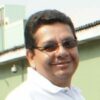
Miguel Aragón
Pan American Health Organization
Coordinator of Transmissable Diseases and Environmental Determinants of Health
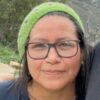
Marcela Olivera
Red VIDA
Coordinator

Alexandre Pessoa Dias
Oswaldo Cruz Foundation (FIOCRUZ)
Sanitary engineer and researcher
Moderated by
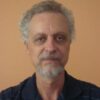
Leo Heller
Oswaldo Cruz Foundation (Fiocruz)
Researcher, René Rachou Institute
Water
Plenary session: Human right to water, sanitation and hygiene (WASH) – Barriers and solutions
Share this session
13 February 2023, 15:00 - 16:15 BRT (Rio de Janeiro)
13 February 2023, 19:00 - 20:15 CET (Brussels)
13 February 2023, 19:00 - 20:15 WAT (Nigeria)
13 February 2023, 20:00 - 21:15 SAST (Cape Town)
13 February 2023, 13:00 - 14:15 EST (New York)
13 February 2023, 03:00 - 04:15 KST (Seoul)
13 February 2023, 02:00 - 03:15 CST (Beijing)
13 February 2023, 23:30 - 00:45 IST (New Delhi)
13 February 2023, 22:00 - 23:15 GST (Dubai)
Room Manguinhos & online
The World Health Organization Joint Monitoring Programme estimates that more than 700 million people, primarily from the most vulnerable and poor communities, still lack basic access to safe drinking water, sanitation and hygiene (WASH). Sustainable Development Goal (SDG) 6.1 (universal and equitable access to safe and affordable drinking water) and SDG 6.2 (access to adequate and equitable sanitation and hygiene) were created precisely to help tackle this daunting problem.
The main bottleneck in the provision of WASH is the large capital investment needed for infrastructure, operations, and maintenance, which is why transparent financing and governance practices must go hand-in-hand in such projects. Subsidization and tariffication are two strategies currently used by some developing countries where, despite the reluctance to pay, there are clear social benefits. Ideally, effective policy making concerning WASH should be coordinated with local knowledge, especially in rural and remote areas where decentralized systems are often the only feasible solution.
Better integration of research and innovation in this field and governance decision-making remains a challenge but valuable information can be gained by sharing the lessons learned from other examples of WASH projects around the world. During this session, the panel of experts will discuss ways to achieve universal and equitable access to safe and affordable drinking water (SDG 6.1) and access to adequate and equitable sanitation and hygiene for all (SDG 6.2). They will look at the possibilities to provide a platform for youth representatives to highlight the human right to access WASH and propose strategies for international cooperation and partnerships to accelerate the realization of SDG 6.

Miguel Aragón
Pan American Health Organization
Coordinator of Transmissable Diseases and Environmental Determinants of Health

Marcela Olivera
Red VIDA
Coordinator

Alexandre Pessoa Dias
Oswaldo Cruz Foundation (FIOCRUZ)
Sanitary engineer and researcher
Moderated by

Leo Heller
Oswaldo Cruz Foundation (Fiocruz)
Researcher, René Rachou Institute
Water
Plenary session: Human right to water, sanitation and hygiene (WASH) – Barriers and solutions
Share this session
13 February 2023, 15:00 - 16:15 BRT (Rio de Janeiro)
13 February 2023, 19:00 - 20:15 CET (Brussels)
13 February 2023, 19:00 - 20:15 WAT (Nigeria)
13 February 2023, 20:00 - 21:15 SAST (Cape Town)
13 February 2023, 13:00 - 14:15 EST (New York)
13 February 2023, 03:00 - 04:15 KST (Seoul)
13 February 2023, 02:00 - 03:15 CST (Beijing)
13 February 2023, 23:30 - 00:45 IST (New Delhi)
13 February 2023, 22:00 - 23:15 GST (Dubai)
Room Manguinhos & online
The World Health Organization Joint Monitoring Programme estimates that more than 700 million people, primarily from the most vulnerable and poor communities, still lack basic access to safe drinking water, sanitation and hygiene (WASH). Sustainable Development Goal (SDG) 6.1 (universal and equitable access to safe and affordable drinking water) and SDG 6.2 (access to adequate and equitable sanitation and hygiene) were created precisely to help tackle this daunting problem.
The main bottleneck in the provision of WASH is the large capital investment needed for infrastructure, operations, and maintenance, which is why transparent financing and governance practices must go hand-in-hand in such projects. Subsidization and tariffication are two strategies currently used by some developing countries where, despite the reluctance to pay, there are clear social benefits. Ideally, effective policy making concerning WASH should be coordinated with local knowledge, especially in rural and remote areas where decentralized systems are often the only feasible solution.
Better integration of research and innovation in this field and governance decision-making remains a challenge but valuable information can be gained by sharing the lessons learned from other examples of WASH projects around the world. During this session, the panel of experts will discuss ways to achieve universal and equitable access to safe and affordable drinking water (SDG 6.1) and access to adequate and equitable sanitation and hygiene for all (SDG 6.2). They will look at the possibilities to provide a platform for youth representatives to highlight the human right to access WASH and propose strategies for international cooperation and partnerships to accelerate the realization of SDG 6.

Miguel Aragón
Pan American Health Organization
Coordinator of Transmissable Diseases and Environmental Determinants of Health

Marcela Olivera
Red VIDA
Coordinator

Alexandre Pessoa Dias
Oswaldo Cruz Foundation (FIOCRUZ)
Sanitary engineer and researcher
Moderated by

Leo Heller
Oswaldo Cruz Foundation (Fiocruz)
Researcher, René Rachou Institute
Water
Plenary session: Human right to water, sanitation and hygiene (WASH) – Barriers and solutions
Share this session
13 February 2023, 15:00 - 16:15 BRT (Rio de Janeiro)
13 February 2023, 19:00 - 20:15 CET (Brussels)
13 February 2023, 19:00 - 20:15 WAT (Nigeria)
13 February 2023, 20:00 - 21:15 SAST (Cape Town)
13 February 2023, 13:00 - 14:15 EST (New York)
13 February 2023, 03:00 - 04:15 KST (Seoul)
13 February 2023, 02:00 - 03:15 CST (Beijing)
13 February 2023, 23:30 - 00:45 IST (New Delhi)
13 February 2023, 22:00 - 23:15 GST (Dubai)
Room Manguinhos & online
The World Health Organization Joint Monitoring Programme estimates that more than 700 million people, primarily from the most vulnerable and poor communities, still lack basic access to safe drinking water, sanitation and hygiene (WASH). Sustainable Development Goal (SDG) 6.1 (universal and equitable access to safe and affordable drinking water) and SDG 6.2 (access to adequate and equitable sanitation and hygiene) were created precisely to help tackle this daunting problem.
The main bottleneck in the provision of WASH is the large capital investment needed for infrastructure, operations, and maintenance, which is why transparent financing and governance practices must go hand-in-hand in such projects. Subsidization and tariffication are two strategies currently used by some developing countries where, despite the reluctance to pay, there are clear social benefits. Ideally, effective policy making concerning WASH should be coordinated with local knowledge, especially in rural and remote areas where decentralized systems are often the only feasible solution.
Better integration of research and innovation in this field and governance decision-making remains a challenge but valuable information can be gained by sharing the lessons learned from other examples of WASH projects around the world. During this session, the panel of experts will discuss ways to achieve universal and equitable access to safe and affordable drinking water (SDG 6.1) and access to adequate and equitable sanitation and hygiene for all (SDG 6.2). They will look at the possibilities to provide a platform for youth representatives to highlight the human right to access WASH and propose strategies for international cooperation and partnerships to accelerate the realization of SDG 6.

Miguel Aragón
Pan American Health Organization
Coordinator of Transmissable Diseases and Environmental Determinants of Health

Marcela Olivera
Red VIDA
Coordinator

Alexandre Pessoa Dias
Oswaldo Cruz Foundation (FIOCRUZ)
Sanitary engineer and researcher
Moderated by

Leo Heller
Oswaldo Cruz Foundation (Fiocruz)
Researcher, René Rachou Institute
Water
Plenary session: Human right to water, sanitation and hygiene (WASH) – Barriers and solutions
Share this session
13 February 2023, 15:00 - 16:15 BRT (Rio de Janeiro)
13 February 2023, 19:00 - 20:15 CET (Brussels)
13 February 2023, 19:00 - 20:15 WAT (Nigeria)
13 February 2023, 20:00 - 21:15 SAST (Cape Town)
13 February 2023, 13:00 - 14:15 EST (New York)
13 February 2023, 03:00 - 04:15 KST (Seoul)
13 February 2023, 02:00 - 03:15 CST (Beijing)
13 February 2023, 23:30 - 00:45 IST (New Delhi)
13 February 2023, 22:00 - 23:15 GST (Dubai)
Room Manguinhos & online
The World Health Organization Joint Monitoring Programme estimates that more than 700 million people, primarily from the most vulnerable and poor communities, still lack basic access to safe drinking water, sanitation and hygiene (WASH). Sustainable Development Goal (SDG) 6.1 (universal and equitable access to safe and affordable drinking water) and SDG 6.2 (access to adequate and equitable sanitation and hygiene) were created precisely to help tackle this daunting problem.
The main bottleneck in the provision of WASH is the large capital investment needed for infrastructure, operations, and maintenance, which is why transparent financing and governance practices must go hand-in-hand in such projects. Subsidization and tariffication are two strategies currently used by some developing countries where, despite the reluctance to pay, there are clear social benefits. Ideally, effective policy making concerning WASH should be coordinated with local knowledge, especially in rural and remote areas where decentralized systems are often the only feasible solution.
Better integration of research and innovation in this field and governance decision-making remains a challenge but valuable information can be gained by sharing the lessons learned from other examples of WASH projects around the world. During this session, the panel of experts will discuss ways to achieve universal and equitable access to safe and affordable drinking water (SDG 6.1) and access to adequate and equitable sanitation and hygiene for all (SDG 6.2). They will look at the possibilities to provide a platform for youth representatives to highlight the human right to access WASH and propose strategies for international cooperation and partnerships to accelerate the realization of SDG 6.

Miguel Aragón
Pan American Health Organization
Coordinator of Transmissable Diseases and Environmental Determinants of Health

Marcela Olivera
Red VIDA
Coordinator

Alexandre Pessoa Dias
Oswaldo Cruz Foundation (FIOCRUZ)
Sanitary engineer and researcher
Moderated by

Leo Heller
Oswaldo Cruz Foundation (Fiocruz)
Researcher, René Rachou Institute
Water
Plenary session: Human right to water, sanitation and hygiene (WASH) – Barriers and solutions
Share this session
13 February 2023, 15:00 - 16:15 BRT (Rio de Janeiro)
13 February 2023, 19:00 - 20:15 CET (Brussels)
13 February 2023, 19:00 - 20:15 WAT (Nigeria)
13 February 2023, 20:00 - 21:15 SAST (Cape Town)
13 February 2023, 13:00 - 14:15 EST (New York)
13 February 2023, 03:00 - 04:15 KST (Seoul)
13 February 2023, 02:00 - 03:15 CST (Beijing)
13 February 2023, 23:30 - 00:45 IST (New Delhi)
13 February 2023, 22:00 - 23:15 GST (Dubai)
Room Manguinhos & online
The World Health Organization Joint Monitoring Programme estimates that more than 700 million people, primarily from the most vulnerable and poor communities, still lack basic access to safe drinking water, sanitation and hygiene (WASH). Sustainable Development Goal (SDG) 6.1 (universal and equitable access to safe and affordable drinking water) and SDG 6.2 (access to adequate and equitable sanitation and hygiene) were created precisely to help tackle this daunting problem.
The main bottleneck in the provision of WASH is the large capital investment needed for infrastructure, operations, and maintenance, which is why transparent financing and governance practices must go hand-in-hand in such projects. Subsidization and tariffication are two strategies currently used by some developing countries where, despite the reluctance to pay, there are clear social benefits. Ideally, effective policy making concerning WASH should be coordinated with local knowledge, especially in rural and remote areas where decentralized systems are often the only feasible solution.
Better integration of research and innovation in this field and governance decision-making remains a challenge but valuable information can be gained by sharing the lessons learned from other examples of WASH projects around the world. During this session, the panel of experts will discuss ways to achieve universal and equitable access to safe and affordable drinking water (SDG 6.1) and access to adequate and equitable sanitation and hygiene for all (SDG 6.2). They will look at the possibilities to provide a platform for youth representatives to highlight the human right to access WASH and propose strategies for international cooperation and partnerships to accelerate the realization of SDG 6.

Miguel Aragón
Pan American Health Organization
Coordinator of Transmissable Diseases and Environmental Determinants of Health

Marcela Olivera
Red VIDA
Coordinator

Alexandre Pessoa Dias
Oswaldo Cruz Foundation (FIOCRUZ)
Sanitary engineer and researcher
Moderated by

Leo Heller
Oswaldo Cruz Foundation (Fiocruz)
Researcher, René Rachou Institute
Water
Plenary session: Human right to water, sanitation and hygiene (WASH) – Barriers and solutions
Share this session
13 February 2023, 15:00 - 16:15 BRT (Rio de Janeiro)
13 February 2023, 19:00 - 20:15 CET (Brussels)
13 February 2023, 19:00 - 20:15 WAT (Nigeria)
13 February 2023, 20:00 - 21:15 SAST (Cape Town)
13 February 2023, 13:00 - 14:15 EST (New York)
13 February 2023, 03:00 - 04:15 KST (Seoul)
13 February 2023, 02:00 - 03:15 CST (Beijing)
13 February 2023, 23:30 - 00:45 IST (New Delhi)
13 February 2023, 22:00 - 23:15 GST (Dubai)
Room Manguinhos & online
The World Health Organization Joint Monitoring Programme estimates that more than 700 million people, primarily from the most vulnerable and poor communities, still lack basic access to safe drinking water, sanitation and hygiene (WASH). Sustainable Development Goal (SDG) 6.1 (universal and equitable access to safe and affordable drinking water) and SDG 6.2 (access to adequate and equitable sanitation and hygiene) were created precisely to help tackle this daunting problem.
The main bottleneck in the provision of WASH is the large capital investment needed for infrastructure, operations, and maintenance, which is why transparent financing and governance practices must go hand-in-hand in such projects. Subsidization and tariffication are two strategies currently used by some developing countries where, despite the reluctance to pay, there are clear social benefits. Ideally, effective policy making concerning WASH should be coordinated with local knowledge, especially in rural and remote areas where decentralized systems are often the only feasible solution.
Better integration of research and innovation in this field and governance decision-making remains a challenge but valuable information can be gained by sharing the lessons learned from other examples of WASH projects around the world. During this session, the panel of experts will discuss ways to achieve universal and equitable access to safe and affordable drinking water (SDG 6.1) and access to adequate and equitable sanitation and hygiene for all (SDG 6.2). They will look at the possibilities to provide a platform for youth representatives to highlight the human right to access WASH and propose strategies for international cooperation and partnerships to accelerate the realization of SDG 6.

Miguel Aragón
Pan American Health Organization
Coordinator of Transmissable Diseases and Environmental Determinants of Health

Marcela Olivera
Red VIDA
Coordinator

Alexandre Pessoa Dias
Oswaldo Cruz Foundation (FIOCRUZ)
Sanitary engineer and researcher
Moderated by

Leo Heller
Oswaldo Cruz Foundation (Fiocruz)
Researcher, René Rachou Institute
Water
Plenary session: Human right to water, sanitation and hygiene (WASH) – Barriers and solutions
Share this session
13 February 2023, 15:00 - 16:15 BRT (Rio de Janeiro)
13 February 2023, 19:00 - 20:15 CET (Brussels)
13 February 2023, 19:00 - 20:15 WAT (Nigeria)
13 February 2023, 20:00 - 21:15 SAST (Cape Town)
13 February 2023, 13:00 - 14:15 EST (New York)
13 February 2023, 03:00 - 04:15 KST (Seoul)
13 February 2023, 02:00 - 03:15 CST (Beijing)
13 February 2023, 23:30 - 00:45 IST (New Delhi)
13 February 2023, 22:00 - 23:15 GST (Dubai)
Room Manguinhos & online
The World Health Organization Joint Monitoring Programme estimates that more than 700 million people, primarily from the most vulnerable and poor communities, still lack basic access to safe drinking water, sanitation and hygiene (WASH). Sustainable Development Goal (SDG) 6.1 (universal and equitable access to safe and affordable drinking water) and SDG 6.2 (access to adequate and equitable sanitation and hygiene) were created precisely to help tackle this daunting problem.
The main bottleneck in the provision of WASH is the large capital investment needed for infrastructure, operations, and maintenance, which is why transparent financing and governance practices must go hand-in-hand in such projects. Subsidization and tariffication are two strategies currently used by some developing countries where, despite the reluctance to pay, there are clear social benefits. Ideally, effective policy making concerning WASH should be coordinated with local knowledge, especially in rural and remote areas where decentralized systems are often the only feasible solution.
Better integration of research and innovation in this field and governance decision-making remains a challenge but valuable information can be gained by sharing the lessons learned from other examples of WASH projects around the world. During this session, the panel of experts will discuss ways to achieve universal and equitable access to safe and affordable drinking water (SDG 6.1) and access to adequate and equitable sanitation and hygiene for all (SDG 6.2). They will look at the possibilities to provide a platform for youth representatives to highlight the human right to access WASH and propose strategies for international cooperation and partnerships to accelerate the realization of SDG 6.

Miguel Aragón
Pan American Health Organization
Coordinator of Transmissable Diseases and Environmental Determinants of Health

Marcela Olivera
Red VIDA
Coordinator

Alexandre Pessoa Dias
Oswaldo Cruz Foundation (FIOCRUZ)
Sanitary engineer and researcher
Moderated by

Leo Heller
Oswaldo Cruz Foundation (Fiocruz)
Researcher, René Rachou Institute
Water
Plenary session: Human right to water, sanitation and hygiene (WASH) – Barriers and solutions
Share this session
13 February 2023, 15:00 - 16:15 BRT (Rio de Janeiro)
13 February 2023, 19:00 - 20:15 CET (Brussels)
13 February 2023, 19:00 - 20:15 WAT (Nigeria)
13 February 2023, 20:00 - 21:15 SAST (Cape Town)
13 February 2023, 13:00 - 14:15 EST (New York)
13 February 2023, 03:00 - 04:15 KST (Seoul)
13 February 2023, 02:00 - 03:15 CST (Beijing)
13 February 2023, 23:30 - 00:45 IST (New Delhi)
13 February 2023, 22:00 - 23:15 GST (Dubai)
Room Manguinhos & online
The World Health Organization Joint Monitoring Programme estimates that more than 700 million people, primarily from the most vulnerable and poor communities, still lack basic access to safe drinking water, sanitation and hygiene (WASH). Sustainable Development Goal (SDG) 6.1 (universal and equitable access to safe and affordable drinking water) and SDG 6.2 (access to adequate and equitable sanitation and hygiene) were created precisely to help tackle this daunting problem.
The main bottleneck in the provision of WASH is the large capital investment needed for infrastructure, operations, and maintenance, which is why transparent financing and governance practices must go hand-in-hand in such projects. Subsidization and tariffication are two strategies currently used by some developing countries where, despite the reluctance to pay, there are clear social benefits. Ideally, effective policy making concerning WASH should be coordinated with local knowledge, especially in rural and remote areas where decentralized systems are often the only feasible solution.
Better integration of research and innovation in this field and governance decision-making remains a challenge but valuable information can be gained by sharing the lessons learned from other examples of WASH projects around the world. During this session, the panel of experts will discuss ways to achieve universal and equitable access to safe and affordable drinking water (SDG 6.1) and access to adequate and equitable sanitation and hygiene for all (SDG 6.2). They will look at the possibilities to provide a platform for youth representatives to highlight the human right to access WASH and propose strategies for international cooperation and partnerships to accelerate the realization of SDG 6.

Miguel Aragón
Pan American Health Organization
Coordinator of Transmissable Diseases and Environmental Determinants of Health

Marcela Olivera
Red VIDA
Coordinator

Alexandre Pessoa Dias
Oswaldo Cruz Foundation (FIOCRUZ)
Sanitary engineer and researcher
Moderated by

Leo Heller
Oswaldo Cruz Foundation (Fiocruz)
Researcher, René Rachou Institute
14 February 2023
Water
Water
Deep dive session: Sustainable WASH in peri-urban and rural areas
Share this session
14 February 2023, 09:00 - 10:15 BRT (Rio de Janeiro)
14 February 2023, 13:00 - 14:15 CET (Brussels)
14 February 2023, 13:00 - 14:15 WAT (Nigeria)
14 February 2023, 14:00 - 15:15 SAST (Cape Town)
14 February 2023, 07:00 - 08:15 EST (New York)
14 February 2023, 21:00 - 22:15 KST (Seoul)
14 February 2023, 20:00 - 21:15 CST (Beijing)
14 February 2023, 17:30 - 18:45 IST (New Delhi)
14 February 2023, 16:00 - 17:15 GST (Dubai)
Room Estácio & online
Access to water, sanitation, and hygiene (WASH) is a basic human right that is still lacking in many parts of the world. Peri-urban and rural areas in developing countries are particularly affected as these areas do not normally have a proper water infrastructure. When there is an infrastructure, it is often prone to failure due to limited capacity, resources and/or the political will to maintain a widely dispersed system. There are also problems with repair and maintenance, and when a system fails, it is often not repaired quickly, if repaired at all. Under these circumstances, people are forced to get water from alternative sources which can be some distance away, or even pay for it to be transported, making it unreliable and unaffordable to meet basic WASH needs.
The UN World Water Development Report 2021 highlights the fact that an integrated approach to WASH can lead to improved health, increased school attendance, greater privacy and safety especially for women, children and the most-vulnerable individuals, and provide a greater sense of dignity for all. The current frameworks to establish sustainable long-term WASH in peri-urban and rural areas revolve around the combination of technological innovations and social interventions. Quite often, the technology will be working as it should but more needs to be done to get people to use it, especially in deeply rural or marginalized areas.
This session will share the lessons learnt from successful WASH projects in peri-urban and rural areas and will highlight breakthroughs to sustainable WASH in marginalized areas. The panelists will present successful cases of sustainable WASH in South America, India and Africa.
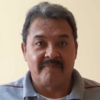
Rolando Hinojosa
Latin American Confederation of Community Organizations for Water Services and Sanitation (CLOCSAS)
Secretary

Sara López
National Service for Environmental Sanitation of Paraguay (SENASA)
General Director
Water
Deep dive session: Sustainable WASH in peri-urban and rural areas
Share this session
14 February 2023, 09:00 - 10:15 BRT (Rio de Janeiro)
14 February 2023, 13:00 - 14:15 CET (Brussels)
14 February 2023, 13:00 - 14:15 WAT (Nigeria)
14 February 2023, 14:00 - 15:15 SAST (Cape Town)
14 February 2023, 07:00 - 08:15 EST (New York)
14 February 2023, 21:00 - 22:15 KST (Seoul)
14 February 2023, 20:00 - 21:15 CST (Beijing)
14 February 2023, 17:30 - 18:45 IST (New Delhi)
14 February 2023, 16:00 - 17:15 GST (Dubai)
Room Estácio & online
Access to water, sanitation, and hygiene (WASH) is a basic human right that is still lacking in many parts of the world. Peri-urban and rural areas in developing countries are particularly affected as these areas do not normally have a proper water infrastructure. When there is an infrastructure, it is often prone to failure due to limited capacity, resources and/or the political will to maintain a widely dispersed system. There are also problems with repair and maintenance, and when a system fails, it is often not repaired quickly, if repaired at all. Under these circumstances, people are forced to get water from alternative sources which can be some distance away, or even pay for it to be transported, making it unreliable and unaffordable to meet basic WASH needs.
The UN World Water Development Report 2021 highlights the fact that an integrated approach to WASH can lead to improved health, increased school attendance, greater privacy and safety especially for women, children and the most-vulnerable individuals, and provide a greater sense of dignity for all. The current frameworks to establish sustainable long-term WASH in peri-urban and rural areas revolve around the combination of technological innovations and social interventions. Quite often, the technology will be working as it should but more needs to be done to get people to use it, especially in deeply rural or marginalized areas.
This session will share the lessons learnt from successful WASH projects in peri-urban and rural areas and will highlight breakthroughs to sustainable WASH in marginalized areas. The panelists will present successful cases of sustainable WASH in South America, India and Africa.

Rolando Hinojosa
Latin American Confederation of Community Organizations for Water Services and Sanitation (CLOCSAS)
Secretary

Sara López
National Service for Environmental Sanitation of Paraguay (SENASA)
General Director
Water
Deep dive session: Sustainable WASH in peri-urban and rural areas
Share this session
14 February 2023, 09:00 - 10:15 BRT (Rio de Janeiro)
14 February 2023, 13:00 - 14:15 CET (Brussels)
14 February 2023, 13:00 - 14:15 WAT (Nigeria)
14 February 2023, 14:00 - 15:15 SAST (Cape Town)
14 February 2023, 07:00 - 08:15 EST (New York)
14 February 2023, 21:00 - 22:15 KST (Seoul)
14 February 2023, 20:00 - 21:15 CST (Beijing)
14 February 2023, 17:30 - 18:45 IST (New Delhi)
14 February 2023, 16:00 - 17:15 GST (Dubai)
Room Estácio & online
Access to water, sanitation, and hygiene (WASH) is a basic human right that is still lacking in many parts of the world. Peri-urban and rural areas in developing countries are particularly affected as these areas do not normally have a proper water infrastructure. When there is an infrastructure, it is often prone to failure due to limited capacity, resources and/or the political will to maintain a widely dispersed system. There are also problems with repair and maintenance, and when a system fails, it is often not repaired quickly, if repaired at all. Under these circumstances, people are forced to get water from alternative sources which can be some distance away, or even pay for it to be transported, making it unreliable and unaffordable to meet basic WASH needs.
The UN World Water Development Report 2021 highlights the fact that an integrated approach to WASH can lead to improved health, increased school attendance, greater privacy and safety especially for women, children and the most-vulnerable individuals, and provide a greater sense of dignity for all. The current frameworks to establish sustainable long-term WASH in peri-urban and rural areas revolve around the combination of technological innovations and social interventions. Quite often, the technology will be working as it should but more needs to be done to get people to use it, especially in deeply rural or marginalized areas.
This session will share the lessons learnt from successful WASH projects in peri-urban and rural areas and will highlight breakthroughs to sustainable WASH in marginalized areas. The panelists will present successful cases of sustainable WASH in South America, India and Africa.

Rolando Hinojosa
Latin American Confederation of Community Organizations for Water Services and Sanitation (CLOCSAS)
Secretary

Sara López
National Service for Environmental Sanitation of Paraguay (SENASA)
General Director
Water
Deep dive session: Sustainable WASH in peri-urban and rural areas
Share this session
14 February 2023, 09:00 - 10:15 BRT (Rio de Janeiro)
14 February 2023, 13:00 - 14:15 CET (Brussels)
14 February 2023, 13:00 - 14:15 WAT (Nigeria)
14 February 2023, 14:00 - 15:15 SAST (Cape Town)
14 February 2023, 07:00 - 08:15 EST (New York)
14 February 2023, 21:00 - 22:15 KST (Seoul)
14 February 2023, 20:00 - 21:15 CST (Beijing)
14 February 2023, 17:30 - 18:45 IST (New Delhi)
14 February 2023, 16:00 - 17:15 GST (Dubai)
Room Estácio & online
Access to water, sanitation, and hygiene (WASH) is a basic human right that is still lacking in many parts of the world. Peri-urban and rural areas in developing countries are particularly affected as these areas do not normally have a proper water infrastructure. When there is an infrastructure, it is often prone to failure due to limited capacity, resources and/or the political will to maintain a widely dispersed system. There are also problems with repair and maintenance, and when a system fails, it is often not repaired quickly, if repaired at all. Under these circumstances, people are forced to get water from alternative sources which can be some distance away, or even pay for it to be transported, making it unreliable and unaffordable to meet basic WASH needs.
The UN World Water Development Report 2021 highlights the fact that an integrated approach to WASH can lead to improved health, increased school attendance, greater privacy and safety especially for women, children and the most-vulnerable individuals, and provide a greater sense of dignity for all. The current frameworks to establish sustainable long-term WASH in peri-urban and rural areas revolve around the combination of technological innovations and social interventions. Quite often, the technology will be working as it should but more needs to be done to get people to use it, especially in deeply rural or marginalized areas.
This session will share the lessons learnt from successful WASH projects in peri-urban and rural areas and will highlight breakthroughs to sustainable WASH in marginalized areas. The panelists will present successful cases of sustainable WASH in South America, India and Africa.

Rolando Hinojosa
Latin American Confederation of Community Organizations for Water Services and Sanitation (CLOCSAS)
Secretary

Sara López
National Service for Environmental Sanitation of Paraguay (SENASA)
General Director
Water
Deep dive session: Sustainable WASH in peri-urban and rural areas
Share this session
14 February 2023, 09:00 - 10:15 BRT (Rio de Janeiro)
14 February 2023, 13:00 - 14:15 CET (Brussels)
14 February 2023, 13:00 - 14:15 WAT (Nigeria)
14 February 2023, 14:00 - 15:15 SAST (Cape Town)
14 February 2023, 07:00 - 08:15 EST (New York)
14 February 2023, 21:00 - 22:15 KST (Seoul)
14 February 2023, 20:00 - 21:15 CST (Beijing)
14 February 2023, 17:30 - 18:45 IST (New Delhi)
14 February 2023, 16:00 - 17:15 GST (Dubai)
Room Estácio & online
Access to water, sanitation, and hygiene (WASH) is a basic human right that is still lacking in many parts of the world. Peri-urban and rural areas in developing countries are particularly affected as these areas do not normally have a proper water infrastructure. When there is an infrastructure, it is often prone to failure due to limited capacity, resources and/or the political will to maintain a widely dispersed system. There are also problems with repair and maintenance, and when a system fails, it is often not repaired quickly, if repaired at all. Under these circumstances, people are forced to get water from alternative sources which can be some distance away, or even pay for it to be transported, making it unreliable and unaffordable to meet basic WASH needs.
The UN World Water Development Report 2021 highlights the fact that an integrated approach to WASH can lead to improved health, increased school attendance, greater privacy and safety especially for women, children and the most-vulnerable individuals, and provide a greater sense of dignity for all. The current frameworks to establish sustainable long-term WASH in peri-urban and rural areas revolve around the combination of technological innovations and social interventions. Quite often, the technology will be working as it should but more needs to be done to get people to use it, especially in deeply rural or marginalized areas.
This session will share the lessons learnt from successful WASH projects in peri-urban and rural areas and will highlight breakthroughs to sustainable WASH in marginalized areas. The panelists will present successful cases of sustainable WASH in South America, India and Africa.

Rolando Hinojosa
Latin American Confederation of Community Organizations for Water Services and Sanitation (CLOCSAS)
Secretary

Sara López
National Service for Environmental Sanitation of Paraguay (SENASA)
General Director
Water
Deep dive session: Sustainable WASH in peri-urban and rural areas
Share this session
14 February 2023, 09:00 - 10:15 BRT (Rio de Janeiro)
14 February 2023, 13:00 - 14:15 CET (Brussels)
14 February 2023, 13:00 - 14:15 WAT (Nigeria)
14 February 2023, 14:00 - 15:15 SAST (Cape Town)
14 February 2023, 07:00 - 08:15 EST (New York)
14 February 2023, 21:00 - 22:15 KST (Seoul)
14 February 2023, 20:00 - 21:15 CST (Beijing)
14 February 2023, 17:30 - 18:45 IST (New Delhi)
14 February 2023, 16:00 - 17:15 GST (Dubai)
Room Estácio & online
Access to water, sanitation, and hygiene (WASH) is a basic human right that is still lacking in many parts of the world. Peri-urban and rural areas in developing countries are particularly affected as these areas do not normally have a proper water infrastructure. When there is an infrastructure, it is often prone to failure due to limited capacity, resources and/or the political will to maintain a widely dispersed system. There are also problems with repair and maintenance, and when a system fails, it is often not repaired quickly, if repaired at all. Under these circumstances, people are forced to get water from alternative sources which can be some distance away, or even pay for it to be transported, making it unreliable and unaffordable to meet basic WASH needs.
The UN World Water Development Report 2021 highlights the fact that an integrated approach to WASH can lead to improved health, increased school attendance, greater privacy and safety especially for women, children and the most-vulnerable individuals, and provide a greater sense of dignity for all. The current frameworks to establish sustainable long-term WASH in peri-urban and rural areas revolve around the combination of technological innovations and social interventions. Quite often, the technology will be working as it should but more needs to be done to get people to use it, especially in deeply rural or marginalized areas.
This session will share the lessons learnt from successful WASH projects in peri-urban and rural areas and will highlight breakthroughs to sustainable WASH in marginalized areas. The panelists will present successful cases of sustainable WASH in South America, India and Africa.

Rolando Hinojosa
Latin American Confederation of Community Organizations for Water Services and Sanitation (CLOCSAS)
Secretary

Sara López
National Service for Environmental Sanitation of Paraguay (SENASA)
General Director
Water
Deep dive session: Sustainable WASH in peri-urban and rural areas
Share this session
14 February 2023, 09:00 - 10:15 BRT (Rio de Janeiro)
14 February 2023, 13:00 - 14:15 CET (Brussels)
14 February 2023, 13:00 - 14:15 WAT (Nigeria)
14 February 2023, 14:00 - 15:15 SAST (Cape Town)
14 February 2023, 07:00 - 08:15 EST (New York)
14 February 2023, 21:00 - 22:15 KST (Seoul)
14 February 2023, 20:00 - 21:15 CST (Beijing)
14 February 2023, 17:30 - 18:45 IST (New Delhi)
14 February 2023, 16:00 - 17:15 GST (Dubai)
Room Estácio & online
Access to water, sanitation, and hygiene (WASH) is a basic human right that is still lacking in many parts of the world. Peri-urban and rural areas in developing countries are particularly affected as these areas do not normally have a proper water infrastructure. When there is an infrastructure, it is often prone to failure due to limited capacity, resources and/or the political will to maintain a widely dispersed system. There are also problems with repair and maintenance, and when a system fails, it is often not repaired quickly, if repaired at all. Under these circumstances, people are forced to get water from alternative sources which can be some distance away, or even pay for it to be transported, making it unreliable and unaffordable to meet basic WASH needs.
The UN World Water Development Report 2021 highlights the fact that an integrated approach to WASH can lead to improved health, increased school attendance, greater privacy and safety especially for women, children and the most-vulnerable individuals, and provide a greater sense of dignity for all. The current frameworks to establish sustainable long-term WASH in peri-urban and rural areas revolve around the combination of technological innovations and social interventions. Quite often, the technology will be working as it should but more needs to be done to get people to use it, especially in deeply rural or marginalized areas.
This session will share the lessons learnt from successful WASH projects in peri-urban and rural areas and will highlight breakthroughs to sustainable WASH in marginalized areas. The panelists will present successful cases of sustainable WASH in South America, India and Africa.

Rolando Hinojosa
Latin American Confederation of Community Organizations for Water Services and Sanitation (CLOCSAS)
Secretary

Sara López
National Service for Environmental Sanitation of Paraguay (SENASA)
General Director
Water
Deep dive session: Sustainable WASH in peri-urban and rural areas
Share this session
14 February 2023, 09:00 - 10:15 BRT (Rio de Janeiro)
14 February 2023, 13:00 - 14:15 CET (Brussels)
14 February 2023, 13:00 - 14:15 WAT (Nigeria)
14 February 2023, 14:00 - 15:15 SAST (Cape Town)
14 February 2023, 07:00 - 08:15 EST (New York)
14 February 2023, 21:00 - 22:15 KST (Seoul)
14 February 2023, 20:00 - 21:15 CST (Beijing)
14 February 2023, 17:30 - 18:45 IST (New Delhi)
14 February 2023, 16:00 - 17:15 GST (Dubai)
Room Estácio & online
Access to water, sanitation, and hygiene (WASH) is a basic human right that is still lacking in many parts of the world. Peri-urban and rural areas in developing countries are particularly affected as these areas do not normally have a proper water infrastructure. When there is an infrastructure, it is often prone to failure due to limited capacity, resources and/or the political will to maintain a widely dispersed system. There are also problems with repair and maintenance, and when a system fails, it is often not repaired quickly, if repaired at all. Under these circumstances, people are forced to get water from alternative sources which can be some distance away, or even pay for it to be transported, making it unreliable and unaffordable to meet basic WASH needs.
The UN World Water Development Report 2021 highlights the fact that an integrated approach to WASH can lead to improved health, increased school attendance, greater privacy and safety especially for women, children and the most-vulnerable individuals, and provide a greater sense of dignity for all. The current frameworks to establish sustainable long-term WASH in peri-urban and rural areas revolve around the combination of technological innovations and social interventions. Quite often, the technology will be working as it should but more needs to be done to get people to use it, especially in deeply rural or marginalized areas.
This session will share the lessons learnt from successful WASH projects in peri-urban and rural areas and will highlight breakthroughs to sustainable WASH in marginalized areas. The panelists will present successful cases of sustainable WASH in South America, India and Africa.

Rolando Hinojosa
Latin American Confederation of Community Organizations for Water Services and Sanitation (CLOCSAS)
Secretary

Sara López
National Service for Environmental Sanitation of Paraguay (SENASA)
General Director
Water
Deep dive session: Sustainable WASH in peri-urban and rural areas
Share this session
14 February 2023, 09:00 - 10:15 BRT (Rio de Janeiro)
14 February 2023, 13:00 - 14:15 CET (Brussels)
14 February 2023, 13:00 - 14:15 WAT (Nigeria)
14 February 2023, 14:00 - 15:15 SAST (Cape Town)
14 February 2023, 07:00 - 08:15 EST (New York)
14 February 2023, 21:00 - 22:15 KST (Seoul)
14 February 2023, 20:00 - 21:15 CST (Beijing)
14 February 2023, 17:30 - 18:45 IST (New Delhi)
14 February 2023, 16:00 - 17:15 GST (Dubai)
Room Estácio & online
Access to water, sanitation, and hygiene (WASH) is a basic human right that is still lacking in many parts of the world. Peri-urban and rural areas in developing countries are particularly affected as these areas do not normally have a proper water infrastructure. When there is an infrastructure, it is often prone to failure due to limited capacity, resources and/or the political will to maintain a widely dispersed system. There are also problems with repair and maintenance, and when a system fails, it is often not repaired quickly, if repaired at all. Under these circumstances, people are forced to get water from alternative sources which can be some distance away, or even pay for it to be transported, making it unreliable and unaffordable to meet basic WASH needs.
The UN World Water Development Report 2021 highlights the fact that an integrated approach to WASH can lead to improved health, increased school attendance, greater privacy and safety especially for women, children and the most-vulnerable individuals, and provide a greater sense of dignity for all. The current frameworks to establish sustainable long-term WASH in peri-urban and rural areas revolve around the combination of technological innovations and social interventions. Quite often, the technology will be working as it should but more needs to be done to get people to use it, especially in deeply rural or marginalized areas.
This session will share the lessons learnt from successful WASH projects in peri-urban and rural areas and will highlight breakthroughs to sustainable WASH in marginalized areas. The panelists will present successful cases of sustainable WASH in South America, India and Africa.

Rolando Hinojosa
Latin American Confederation of Community Organizations for Water Services and Sanitation (CLOCSAS)
Secretary

Sara López
National Service for Environmental Sanitation of Paraguay (SENASA)
General Director
Water
Water
Deep dive session: Risks to health from pollutants, pathogens, and emerging contaminants in water
Share this session
14 February 2023, 10:30 - 12:00 BRT (Rio de Janeiro)
14 February 2023, 14:30 - 16:00 CET (Brussels)
14 February 2023, 14:30 - 16:00 WAT (Nigeria)
14 February 2023, 15:30 - 17:00 SAST (Cape Town)
14 February 2023, 08:30 - 10:00 EST (New York)
14 February 2023, 22:30 - 00:00 KST (Seoul)
14 February 2023, 21:30 - 23:00 CST (Beijing)
14 February 2023, 19:00 - 20:30 IST (New Delhi)
14 February 2023, 17:30 - 19:00 GST (Dubai)
Room Estácio & online
Large amounts of untreated wastewater worldwide are still released into streams and rivers, leading to contamination of these vital water supplies. According to the UN World Water Development Report 2021, only 8% of domestic and industrial wastewater is treated in low-income countries, compared with an average of 70% in high-income countries. This poses a serious threat to public health and the environment, especially in developing countries with rapidly growing populations, where the situation is likely to get worse.
Sustainable Development Goal 6.3 focusses precisely on improved water quality, wastewater treatment and safe reuse. Nonetheless, there is growing concern around emerging contaminants such as pharmaceuticals, pesticides, PFAS, and viruses. Although often present in low concentrations, the impact of these pollutants is yet unclear. Monitoring is key to assess the accumulation of pollutants, pathogens, and emerging contaminants in water. Monitoring wastewater streams is vital as these can be an indicator of the general health of a population.
Assessing the health risks around wastewater reuse is also crucial. First, this must be looked at from a technology perspective: how is research and innovation being applied to reuse as a safe and sustainable measure for climate adaptation? Secondly, the societal aspect: how do people feel about wastewater reuse? During this session, the panelists will present ways to balance the real and perceived health risks from water reuse and how to change the way people think about this.
Water
Deep dive session: Risks to health from pollutants, pathogens, and emerging contaminants in water
Share this session
14 February 2023, 10:30 - 12:00 BRT (Rio de Janeiro)
14 February 2023, 14:30 - 16:00 CET (Brussels)
14 February 2023, 14:30 - 16:00 WAT (Nigeria)
14 February 2023, 15:30 - 17:00 SAST (Cape Town)
14 February 2023, 08:30 - 10:00 EST (New York)
14 February 2023, 22:30 - 00:00 KST (Seoul)
14 February 2023, 21:30 - 23:00 CST (Beijing)
14 February 2023, 19:00 - 20:30 IST (New Delhi)
14 February 2023, 17:30 - 19:00 GST (Dubai)
Room Estácio & online
Large amounts of untreated wastewater worldwide are still released into streams and rivers, leading to contamination of these vital water supplies. According to the UN World Water Development Report 2021, only 8% of domestic and industrial wastewater is treated in low-income countries, compared with an average of 70% in high-income countries. This poses a serious threat to public health and the environment, especially in developing countries with rapidly growing populations, where the situation is likely to get worse.
Sustainable Development Goal 6.3 focusses precisely on improved water quality, wastewater treatment and safe reuse. Nonetheless, there is growing concern around emerging contaminants such as pharmaceuticals, pesticides, PFAS, and viruses. Although often present in low concentrations, the impact of these pollutants is yet unclear. Monitoring is key to assess the accumulation of pollutants, pathogens, and emerging contaminants in water. Monitoring wastewater streams is vital as these can be an indicator of the general health of a population.
Assessing the health risks around wastewater reuse is also crucial. First, this must be looked at from a technology perspective: how is research and innovation being applied to reuse as a safe and sustainable measure for climate adaptation? Secondly, the societal aspect: how do people feel about wastewater reuse? During this session, the panelists will present ways to balance the real and perceived health risks from water reuse and how to change the way people think about this.
Water
Deep dive session: Risks to health from pollutants, pathogens, and emerging contaminants in water
Share this session
14 February 2023, 10:30 - 12:00 BRT (Rio de Janeiro)
14 February 2023, 14:30 - 16:00 CET (Brussels)
14 February 2023, 14:30 - 16:00 WAT (Nigeria)
14 February 2023, 15:30 - 17:00 SAST (Cape Town)
14 February 2023, 08:30 - 10:00 EST (New York)
14 February 2023, 22:30 - 00:00 KST (Seoul)
14 February 2023, 21:30 - 23:00 CST (Beijing)
14 February 2023, 19:00 - 20:30 IST (New Delhi)
14 February 2023, 17:30 - 19:00 GST (Dubai)
Room Estácio & online
Large amounts of untreated wastewater worldwide are still released into streams and rivers, leading to contamination of these vital water supplies. According to the UN World Water Development Report 2021, only 8% of domestic and industrial wastewater is treated in low-income countries, compared with an average of 70% in high-income countries. This poses a serious threat to public health and the environment, especially in developing countries with rapidly growing populations, where the situation is likely to get worse.
Sustainable Development Goal 6.3 focusses precisely on improved water quality, wastewater treatment and safe reuse. Nonetheless, there is growing concern around emerging contaminants such as pharmaceuticals, pesticides, PFAS, and viruses. Although often present in low concentrations, the impact of these pollutants is yet unclear. Monitoring is key to assess the accumulation of pollutants, pathogens, and emerging contaminants in water. Monitoring wastewater streams is vital as these can be an indicator of the general health of a population.
Assessing the health risks around wastewater reuse is also crucial. First, this must be looked at from a technology perspective: how is research and innovation being applied to reuse as a safe and sustainable measure for climate adaptation? Secondly, the societal aspect: how do people feel about wastewater reuse? During this session, the panelists will present ways to balance the real and perceived health risks from water reuse and how to change the way people think about this.
Water
Deep dive session: Risks to health from pollutants, pathogens, and emerging contaminants in water
Share this session
14 February 2023, 10:30 - 12:00 BRT (Rio de Janeiro)
14 February 2023, 14:30 - 16:00 CET (Brussels)
14 February 2023, 14:30 - 16:00 WAT (Nigeria)
14 February 2023, 15:30 - 17:00 SAST (Cape Town)
14 February 2023, 08:30 - 10:00 EST (New York)
14 February 2023, 22:30 - 00:00 KST (Seoul)
14 February 2023, 21:30 - 23:00 CST (Beijing)
14 February 2023, 19:00 - 20:30 IST (New Delhi)
14 February 2023, 17:30 - 19:00 GST (Dubai)
Room Estácio & online
Large amounts of untreated wastewater worldwide are still released into streams and rivers, leading to contamination of these vital water supplies. According to the UN World Water Development Report 2021, only 8% of domestic and industrial wastewater is treated in low-income countries, compared with an average of 70% in high-income countries. This poses a serious threat to public health and the environment, especially in developing countries with rapidly growing populations, where the situation is likely to get worse.
Sustainable Development Goal 6.3 focusses precisely on improved water quality, wastewater treatment and safe reuse. Nonetheless, there is growing concern around emerging contaminants such as pharmaceuticals, pesticides, PFAS, and viruses. Although often present in low concentrations, the impact of these pollutants is yet unclear. Monitoring is key to assess the accumulation of pollutants, pathogens, and emerging contaminants in water. Monitoring wastewater streams is vital as these can be an indicator of the general health of a population.
Assessing the health risks around wastewater reuse is also crucial. First, this must be looked at from a technology perspective: how is research and innovation being applied to reuse as a safe and sustainable measure for climate adaptation? Secondly, the societal aspect: how do people feel about wastewater reuse? During this session, the panelists will present ways to balance the real and perceived health risks from water reuse and how to change the way people think about this.
Water
Deep dive session: Risks to health from pollutants, pathogens, and emerging contaminants in water
Share this session
14 February 2023, 10:30 - 12:00 BRT (Rio de Janeiro)
14 February 2023, 14:30 - 16:00 CET (Brussels)
14 February 2023, 14:30 - 16:00 WAT (Nigeria)
14 February 2023, 15:30 - 17:00 SAST (Cape Town)
14 February 2023, 08:30 - 10:00 EST (New York)
14 February 2023, 22:30 - 00:00 KST (Seoul)
14 February 2023, 21:30 - 23:00 CST (Beijing)
14 February 2023, 19:00 - 20:30 IST (New Delhi)
14 February 2023, 17:30 - 19:00 GST (Dubai)
Room Estácio & online
Large amounts of untreated wastewater worldwide are still released into streams and rivers, leading to contamination of these vital water supplies. According to the UN World Water Development Report 2021, only 8% of domestic and industrial wastewater is treated in low-income countries, compared with an average of 70% in high-income countries. This poses a serious threat to public health and the environment, especially in developing countries with rapidly growing populations, where the situation is likely to get worse.
Sustainable Development Goal 6.3 focusses precisely on improved water quality, wastewater treatment and safe reuse. Nonetheless, there is growing concern around emerging contaminants such as pharmaceuticals, pesticides, PFAS, and viruses. Although often present in low concentrations, the impact of these pollutants is yet unclear. Monitoring is key to assess the accumulation of pollutants, pathogens, and emerging contaminants in water. Monitoring wastewater streams is vital as these can be an indicator of the general health of a population.
Assessing the health risks around wastewater reuse is also crucial. First, this must be looked at from a technology perspective: how is research and innovation being applied to reuse as a safe and sustainable measure for climate adaptation? Secondly, the societal aspect: how do people feel about wastewater reuse? During this session, the panelists will present ways to balance the real and perceived health risks from water reuse and how to change the way people think about this.
Water
Deep dive session: Risks to health from pollutants, pathogens, and emerging contaminants in water
Share this session
14 February 2023, 10:30 - 12:00 BRT (Rio de Janeiro)
14 February 2023, 14:30 - 16:00 CET (Brussels)
14 February 2023, 14:30 - 16:00 WAT (Nigeria)
14 February 2023, 15:30 - 17:00 SAST (Cape Town)
14 February 2023, 08:30 - 10:00 EST (New York)
14 February 2023, 22:30 - 00:00 KST (Seoul)
14 February 2023, 21:30 - 23:00 CST (Beijing)
14 February 2023, 19:00 - 20:30 IST (New Delhi)
14 February 2023, 17:30 - 19:00 GST (Dubai)
Room Estácio & online
Large amounts of untreated wastewater worldwide are still released into streams and rivers, leading to contamination of these vital water supplies. According to the UN World Water Development Report 2021, only 8% of domestic and industrial wastewater is treated in low-income countries, compared with an average of 70% in high-income countries. This poses a serious threat to public health and the environment, especially in developing countries with rapidly growing populations, where the situation is likely to get worse.
Sustainable Development Goal 6.3 focusses precisely on improved water quality, wastewater treatment and safe reuse. Nonetheless, there is growing concern around emerging contaminants such as pharmaceuticals, pesticides, PFAS, and viruses. Although often present in low concentrations, the impact of these pollutants is yet unclear. Monitoring is key to assess the accumulation of pollutants, pathogens, and emerging contaminants in water. Monitoring wastewater streams is vital as these can be an indicator of the general health of a population.
Assessing the health risks around wastewater reuse is also crucial. First, this must be looked at from a technology perspective: how is research and innovation being applied to reuse as a safe and sustainable measure for climate adaptation? Secondly, the societal aspect: how do people feel about wastewater reuse? During this session, the panelists will present ways to balance the real and perceived health risks from water reuse and how to change the way people think about this.
Water
Deep dive session: Risks to health from pollutants, pathogens, and emerging contaminants in water
Share this session
14 February 2023, 10:30 - 12:00 BRT (Rio de Janeiro)
14 February 2023, 14:30 - 16:00 CET (Brussels)
14 February 2023, 14:30 - 16:00 WAT (Nigeria)
14 February 2023, 15:30 - 17:00 SAST (Cape Town)
14 February 2023, 08:30 - 10:00 EST (New York)
14 February 2023, 22:30 - 00:00 KST (Seoul)
14 February 2023, 21:30 - 23:00 CST (Beijing)
14 February 2023, 19:00 - 20:30 IST (New Delhi)
14 February 2023, 17:30 - 19:00 GST (Dubai)
Room Estácio & online
Large amounts of untreated wastewater worldwide are still released into streams and rivers, leading to contamination of these vital water supplies. According to the UN World Water Development Report 2021, only 8% of domestic and industrial wastewater is treated in low-income countries, compared with an average of 70% in high-income countries. This poses a serious threat to public health and the environment, especially in developing countries with rapidly growing populations, where the situation is likely to get worse.
Sustainable Development Goal 6.3 focusses precisely on improved water quality, wastewater treatment and safe reuse. Nonetheless, there is growing concern around emerging contaminants such as pharmaceuticals, pesticides, PFAS, and viruses. Although often present in low concentrations, the impact of these pollutants is yet unclear. Monitoring is key to assess the accumulation of pollutants, pathogens, and emerging contaminants in water. Monitoring wastewater streams is vital as these can be an indicator of the general health of a population.
Assessing the health risks around wastewater reuse is also crucial. First, this must be looked at from a technology perspective: how is research and innovation being applied to reuse as a safe and sustainable measure for climate adaptation? Secondly, the societal aspect: how do people feel about wastewater reuse? During this session, the panelists will present ways to balance the real and perceived health risks from water reuse and how to change the way people think about this.
Water
Deep dive session: Risks to health from pollutants, pathogens, and emerging contaminants in water
Share this session
14 February 2023, 10:30 - 12:00 BRT (Rio de Janeiro)
14 February 2023, 14:30 - 16:00 CET (Brussels)
14 February 2023, 14:30 - 16:00 WAT (Nigeria)
14 February 2023, 15:30 - 17:00 SAST (Cape Town)
14 February 2023, 08:30 - 10:00 EST (New York)
14 February 2023, 22:30 - 00:00 KST (Seoul)
14 February 2023, 21:30 - 23:00 CST (Beijing)
14 February 2023, 19:00 - 20:30 IST (New Delhi)
14 February 2023, 17:30 - 19:00 GST (Dubai)
Room Estácio & online
Large amounts of untreated wastewater worldwide are still released into streams and rivers, leading to contamination of these vital water supplies. According to the UN World Water Development Report 2021, only 8% of domestic and industrial wastewater is treated in low-income countries, compared with an average of 70% in high-income countries. This poses a serious threat to public health and the environment, especially in developing countries with rapidly growing populations, where the situation is likely to get worse.
Sustainable Development Goal 6.3 focusses precisely on improved water quality, wastewater treatment and safe reuse. Nonetheless, there is growing concern around emerging contaminants such as pharmaceuticals, pesticides, PFAS, and viruses. Although often present in low concentrations, the impact of these pollutants is yet unclear. Monitoring is key to assess the accumulation of pollutants, pathogens, and emerging contaminants in water. Monitoring wastewater streams is vital as these can be an indicator of the general health of a population.
Assessing the health risks around wastewater reuse is also crucial. First, this must be looked at from a technology perspective: how is research and innovation being applied to reuse as a safe and sustainable measure for climate adaptation? Secondly, the societal aspect: how do people feel about wastewater reuse? During this session, the panelists will present ways to balance the real and perceived health risks from water reuse and how to change the way people think about this.
Water
Deep dive session: Risks to health from pollutants, pathogens, and emerging contaminants in water
Share this session
14 February 2023, 10:30 - 12:00 BRT (Rio de Janeiro)
14 February 2023, 14:30 - 16:00 CET (Brussels)
14 February 2023, 14:30 - 16:00 WAT (Nigeria)
14 February 2023, 15:30 - 17:00 SAST (Cape Town)
14 February 2023, 08:30 - 10:00 EST (New York)
14 February 2023, 22:30 - 00:00 KST (Seoul)
14 February 2023, 21:30 - 23:00 CST (Beijing)
14 February 2023, 19:00 - 20:30 IST (New Delhi)
14 February 2023, 17:30 - 19:00 GST (Dubai)
Room Estácio & online
Large amounts of untreated wastewater worldwide are still released into streams and rivers, leading to contamination of these vital water supplies. According to the UN World Water Development Report 2021, only 8% of domestic and industrial wastewater is treated in low-income countries, compared with an average of 70% in high-income countries. This poses a serious threat to public health and the environment, especially in developing countries with rapidly growing populations, where the situation is likely to get worse.
Sustainable Development Goal 6.3 focusses precisely on improved water quality, wastewater treatment and safe reuse. Nonetheless, there is growing concern around emerging contaminants such as pharmaceuticals, pesticides, PFAS, and viruses. Although often present in low concentrations, the impact of these pollutants is yet unclear. Monitoring is key to assess the accumulation of pollutants, pathogens, and emerging contaminants in water. Monitoring wastewater streams is vital as these can be an indicator of the general health of a population.
Assessing the health risks around wastewater reuse is also crucial. First, this must be looked at from a technology perspective: how is research and innovation being applied to reuse as a safe and sustainable measure for climate adaptation? Secondly, the societal aspect: how do people feel about wastewater reuse? During this session, the panelists will present ways to balance the real and perceived health risks from water reuse and how to change the way people think about this.
Meet world-renowned keynote speakers during the G-STIC Conference February 2023
Get inspired by real-life examples of technological solutions for the SDGs
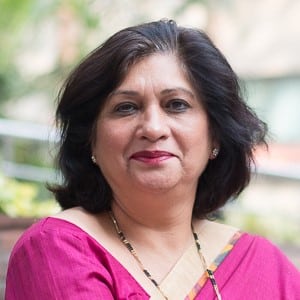
Vibha Dhawan
Director-General
Cross-thematic Water
13 February, 09:30 - 10:30 BRT (Rio de Janeiro)
13 February, 13:30 - 14:30 CET (Brussels)
13 February, 13:30 - 14:30 WAT (Nigeria)
13 February, 14:30 - 15:30 SAST (Cape Town)
13 February, 07:30 - 08:30 EST (New York)
13 February, 21:30 - 22:30 KST (Seoul)
13 February, 20:30 - 21:30 CST (Beijing)
13 February, 18:00 - 19:00 IST (New Delhi)
13 February, 16:30 - 17:30 GST (Dubai)
Plenary session: Opening Ceremony – Innovative technological solutions for a post-pandemic recovery13 February, 13:30 - 14:45 BRT (Rio de Janeiro)
13 February, 17:30 - 18:45 CET (Brussels)
13 February, 17:30 - 18:45 WAT (Nigeria)
13 February, 18:30 - 19:45 SAST (Cape Town)
13 February, 11:30 - 12:45 EST (New York)
13 February, 01:30 - 02:45 KST (Seoul)
13 February, 00:30 - 01:45 CST (Beijing)
13 February, 22:00 - 23:15 IST (New Delhi)
13 February, 20:30 - 21:45 GST (Dubai)
Special session: Water-Energy-Food Nexus – The one way towards sustainable development
Director-General
Have a discussion with top experts during the G-STIC Conference February 2023
Get new insights about technological solutions for the SDGs
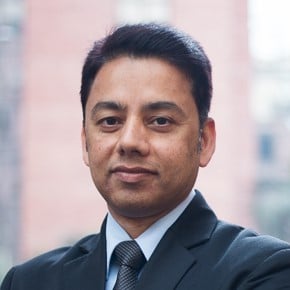
Mr. Anshuman
Associate Director
Water
13 February, 13:30 - 14:45 BRT (Rio de Janeiro)
13 February, 17:30 - 18:45 CET (Brussels)
13 February, 17:30 - 18:45 WAT (Nigeria)
13 February, 18:30 - 19:45 SAST (Cape Town)
13 February, 11:30 - 12:45 EST (New York)
13 February, 01:30 - 02:45 KST (Seoul)
13 February, 00:30 - 01:45 CST (Beijing)
13 February, 22:00 - 23:15 IST (New Delhi)
13 February, 20:30 - 21:45 GST (Dubai)
Special session: Water-Energy-Food Nexus – The one way towards sustainable development14 February, 10:30 - 12:00 BRT (Rio de Janeiro)
14 February, 14:30 - 16:00 CET (Brussels)
14 February, 14:30 - 16:00 WAT (Nigeria)
14 February, 15:30 - 17:00 SAST (Cape Town)
14 February, 08:30 - 10:00 EST (New York)
14 February, 22:30 - 00:00 KST (Seoul)
14 February, 21:30 - 23:00 CST (Beijing)
14 February, 19:00 - 20:30 IST (New Delhi)
14 February, 17:30 - 19:00 GST (Dubai)
Deep dive session: Risks to health from pollutants, pathogens, and emerging contaminants in water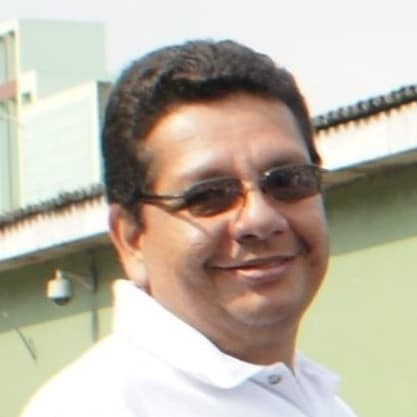
Miguel Aragón
Coordinator of Transmissable Diseases and Environmental Determinants of Health
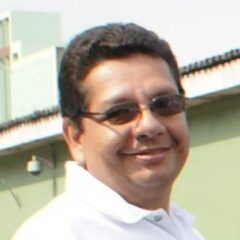
Water
13 February, 15:00 - 16:15 BRT (Rio de Janeiro)
13 February, 19:00 - 20:15 CET (Brussels)
13 February, 19:00 - 20:15 WAT (Nigeria)
13 February, 20:00 - 21:15 SAST (Cape Town)
13 February, 13:00 - 14:15 EST (New York)
13 February, 03:00 - 04:15 KST (Seoul)
13 February, 02:00 - 03:15 CST (Beijing)
13 February, 23:30 - 00:45 IST (New Delhi)
13 February, 22:00 - 23:15 GST (Dubai)
Plenary session: Human right to water, sanitation and hygiene (WASH) – Barriers and solutions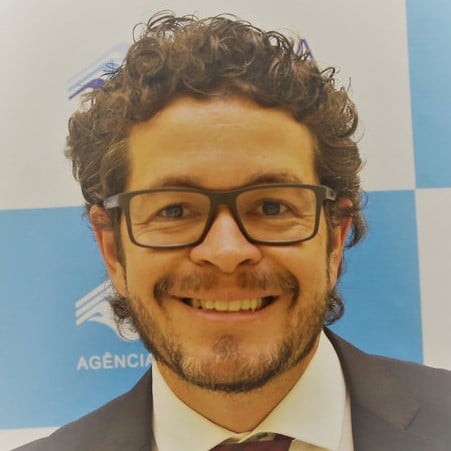
Sergio Ayrimoraes
Specialist
Water
13 February, 13:30 - 14:45 BRT (Rio de Janeiro)
13 February, 17:30 - 18:45 CET (Brussels)
13 February, 17:30 - 18:45 WAT (Nigeria)
13 February, 18:30 - 19:45 SAST (Cape Town)
13 February, 11:30 - 12:45 EST (New York)
13 February, 01:30 - 02:45 KST (Seoul)
13 February, 00:30 - 01:45 CST (Beijing)
13 February, 22:00 - 23:15 IST (New Delhi)
13 February, 20:30 - 21:45 GST (Dubai)
Special session: Water-Energy-Food Nexus – The one way towards sustainable development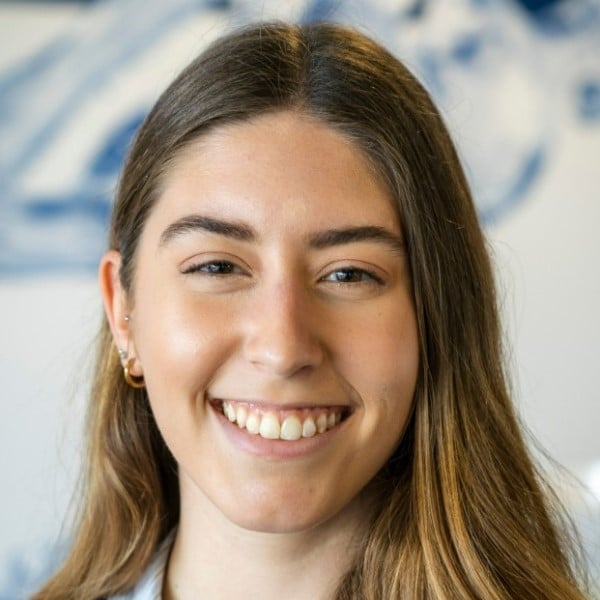
Catarina Baptista
R&D Engineer Water
Water
14 February, 10:30 - 12:00 BRT (Rio de Janeiro)
14 February, 14:30 - 16:00 CET (Brussels)
14 February, 14:30 - 16:00 WAT (Nigeria)
14 February, 15:30 - 17:00 SAST (Cape Town)
14 February, 08:30 - 10:00 EST (New York)
14 February, 22:30 - 00:00 KST (Seoul)
14 February, 21:30 - 23:00 CST (Beijing)
14 February, 19:00 - 20:30 IST (New Delhi)
14 February, 17:30 - 19:00 GST (Dubai)
Deep dive session: Risks to health from pollutants, pathogens, and emerging contaminants in water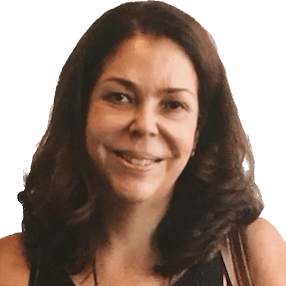
Ana Lucia Britto
Professor in the Urban and Environment Department
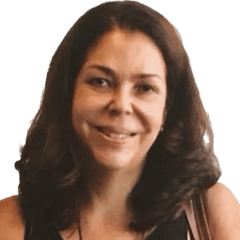
Water
13 February, 15:00 - 16:15 BRT (Rio de Janeiro)
13 February, 19:00 - 20:15 CET (Brussels)
13 February, 19:00 - 20:15 WAT (Nigeria)
13 February, 20:00 - 21:15 SAST (Cape Town)
13 February, 13:00 - 14:15 EST (New York)
13 February, 03:00 - 04:15 KST (Seoul)
13 February, 02:00 - 03:15 CST (Beijing)
13 February, 23:30 - 00:45 IST (New Delhi)
13 February, 22:00 - 23:15 GST (Dubai)
Plenary session: Human right to water, sanitation and hygiene (WASH) – Barriers and solutions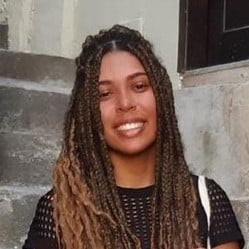
Inahra Cabral Alves da Silva
Student
Water
13 February, 15:00 - 16:15 BRT (Rio de Janeiro)
13 February, 19:00 - 20:15 CET (Brussels)
13 February, 19:00 - 20:15 WAT (Nigeria)
13 February, 20:00 - 21:15 SAST (Cape Town)
13 February, 13:00 - 14:15 EST (New York)
13 February, 03:00 - 04:15 KST (Seoul)
13 February, 02:00 - 03:15 CST (Beijing)
13 February, 23:30 - 00:45 IST (New Delhi)
13 February, 22:00 - 23:15 GST (Dubai)
Plenary session: Human right to water, sanitation and hygiene (WASH) – Barriers and solutions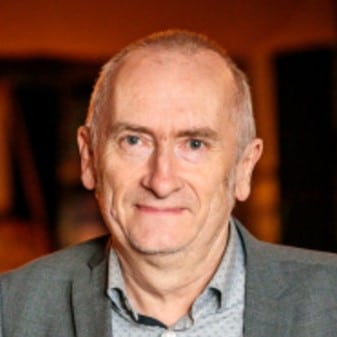
Paul Campling
International Business Development Manager for Environmental Research and Consultancy Projects
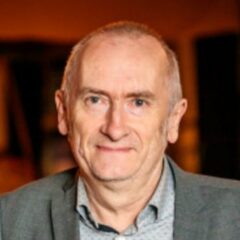
Water
14 February, 09:00 - 10:15 BRT (Rio de Janeiro)
14 February, 13:00 - 14:15 CET (Brussels)
14 February, 13:00 - 14:15 WAT (Nigeria)
14 February, 14:00 - 15:15 SAST (Cape Town)
14 February, 07:00 - 08:15 EST (New York)
14 February, 21:00 - 22:15 KST (Seoul)
14 February, 20:00 - 21:15 CST (Beijing)
14 February, 17:30 - 18:45 IST (New Delhi)
14 February, 16:00 - 17:15 GST (Dubai)
Deep dive session: Sustainable WASH in peri-urban and rural areas14 February, 10:30 - 12:00 BRT (Rio de Janeiro)
14 February, 14:30 - 16:00 CET (Brussels)
14 February, 14:30 - 16:00 WAT (Nigeria)
14 February, 15:30 - 17:00 SAST (Cape Town)
14 February, 08:30 - 10:00 EST (New York)
14 February, 22:30 - 00:00 KST (Seoul)
14 February, 21:30 - 23:00 CST (Beijing)
14 February, 19:00 - 20:30 IST (New Delhi)
14 February, 17:30 - 19:00 GST (Dubai)
Deep dive session: Risks to health from pollutants, pathogens, and emerging contaminants in water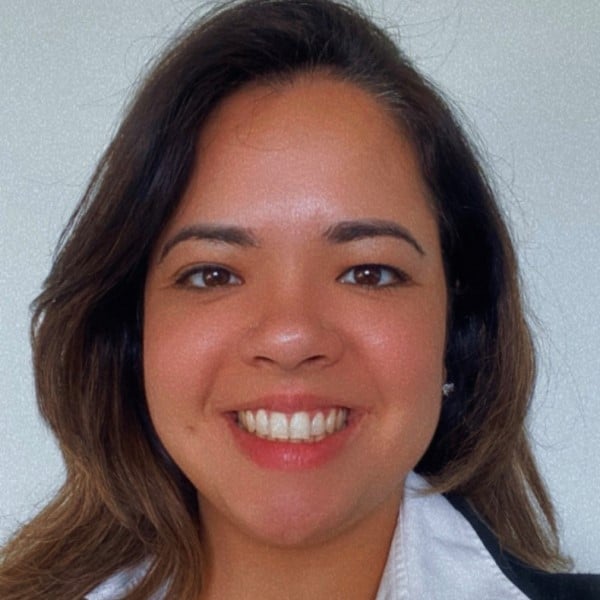
Tamires Carvalho
Coordinator, Water Security
Water
13 February, 13:30 - 14:45 BRT (Rio de Janeiro)
13 February, 17:30 - 18:45 CET (Brussels)
13 February, 17:30 - 18:45 WAT (Nigeria)
13 February, 18:30 - 19:45 SAST (Cape Town)
13 February, 11:30 - 12:45 EST (New York)
13 February, 01:30 - 02:45 KST (Seoul)
13 February, 00:30 - 01:45 CST (Beijing)
13 February, 22:00 - 23:15 IST (New Delhi)
13 February, 20:30 - 21:45 GST (Dubai)
Special session: Water-Energy-Food Nexus – The one way towards sustainable development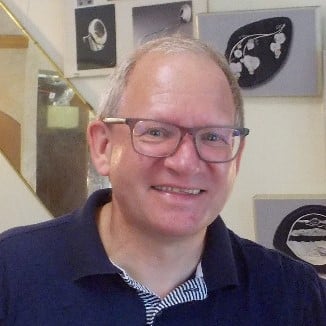
Tom Curtis
Professor of Environmental Engineering
Water
14 February, 10:30 - 12:00 BRT (Rio de Janeiro)
14 February, 14:30 - 16:00 CET (Brussels)
14 February, 14:30 - 16:00 WAT (Nigeria)
14 February, 15:30 - 17:00 SAST (Cape Town)
14 February, 08:30 - 10:00 EST (New York)
14 February, 22:30 - 00:00 KST (Seoul)
14 February, 21:30 - 23:00 CST (Beijing)
14 February, 19:00 - 20:30 IST (New Delhi)
14 February, 17:30 - 19:00 GST (Dubai)
Deep dive session: Risks to health from pollutants, pathogens, and emerging contaminants in water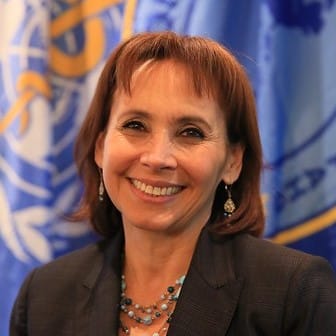
Socorro Gross
Former Assistant Director
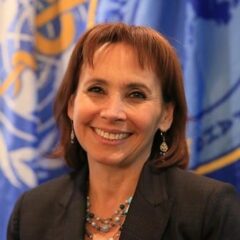
Cross-thematic Water
13 February, 09:30 - 10:30 BRT (Rio de Janeiro)
13 February, 13:30 - 14:30 CET (Brussels)
13 February, 13:30 - 14:30 WAT (Nigeria)
13 February, 14:30 - 15:30 SAST (Cape Town)
13 February, 07:30 - 08:30 EST (New York)
13 February, 21:30 - 22:30 KST (Seoul)
13 February, 20:30 - 21:30 CST (Beijing)
13 February, 18:00 - 19:00 IST (New Delhi)
13 February, 16:30 - 17:30 GST (Dubai)
Plenary session: Opening Ceremony – Innovative technological solutions for a post-pandemic recovery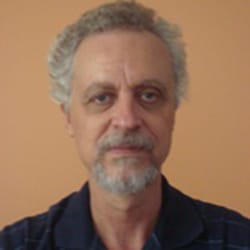
Leo Heller
Researcher, René Rachou Institute
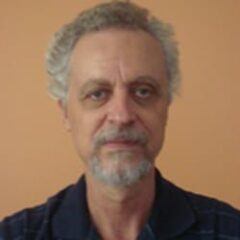
Water
13 February, 15:00 - 16:15 BRT (Rio de Janeiro)
13 February, 19:00 - 20:15 CET (Brussels)
13 February, 19:00 - 20:15 WAT (Nigeria)
13 February, 20:00 - 21:15 SAST (Cape Town)
13 February, 13:00 - 14:15 EST (New York)
13 February, 03:00 - 04:15 KST (Seoul)
13 February, 02:00 - 03:15 CST (Beijing)
13 February, 23:30 - 00:45 IST (New Delhi)
13 February, 22:00 - 23:15 GST (Dubai)
Plenary session: Human right to water, sanitation and hygiene (WASH) – Barriers and solutions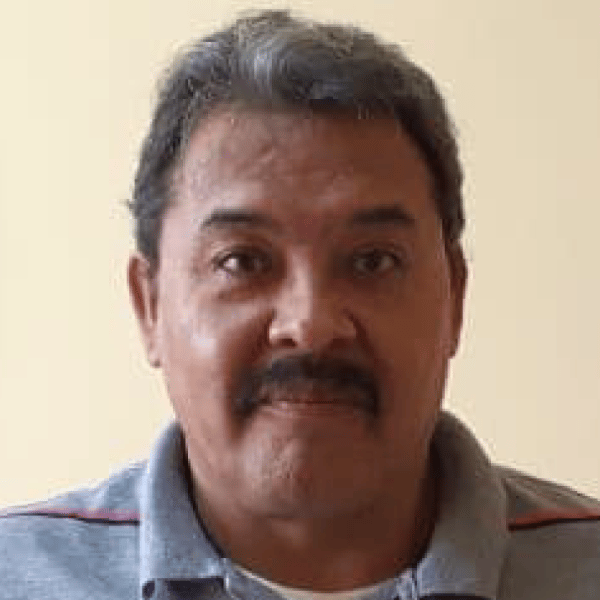
Rolando Hinojosa
Secretary
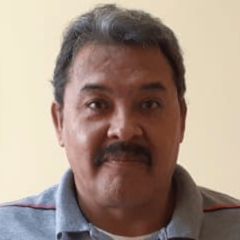
Water
14 February, 09:00 - 10:15 BRT (Rio de Janeiro)
14 February, 13:00 - 14:15 CET (Brussels)
14 February, 13:00 - 14:15 WAT (Nigeria)
14 February, 14:00 - 15:15 SAST (Cape Town)
14 February, 07:00 - 08:15 EST (New York)
14 February, 21:00 - 22:15 KST (Seoul)
14 February, 20:00 - 21:15 CST (Beijing)
14 February, 17:30 - 18:45 IST (New Delhi)
14 February, 16:00 - 17:15 GST (Dubai)
Deep dive session: Sustainable WASH in peri-urban and rural areas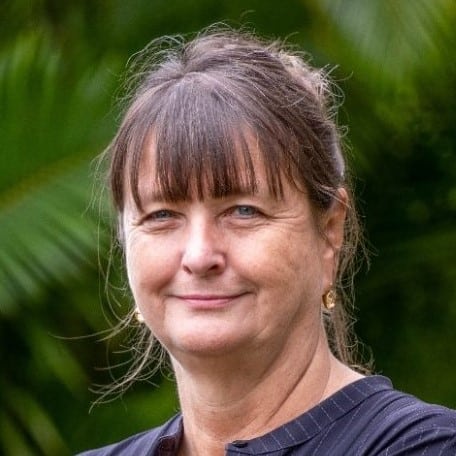
Laurence Janssens
Resident Representative of the Belgian Development Agency in Mozambique and South Africa
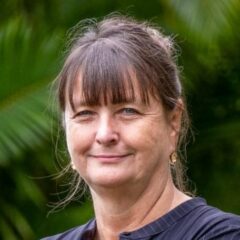
Water
14 February, 09:00 - 10:15 BRT (Rio de Janeiro)
14 February, 13:00 - 14:15 CET (Brussels)
14 February, 13:00 - 14:15 WAT (Nigeria)
14 February, 14:00 - 15:15 SAST (Cape Town)
14 February, 07:00 - 08:15 EST (New York)
14 February, 21:00 - 22:15 KST (Seoul)
14 February, 20:00 - 21:15 CST (Beijing)
14 February, 17:30 - 18:45 IST (New Delhi)
14 February, 16:00 - 17:15 GST (Dubai)
Deep dive session: Sustainable WASH in peri-urban and rural areas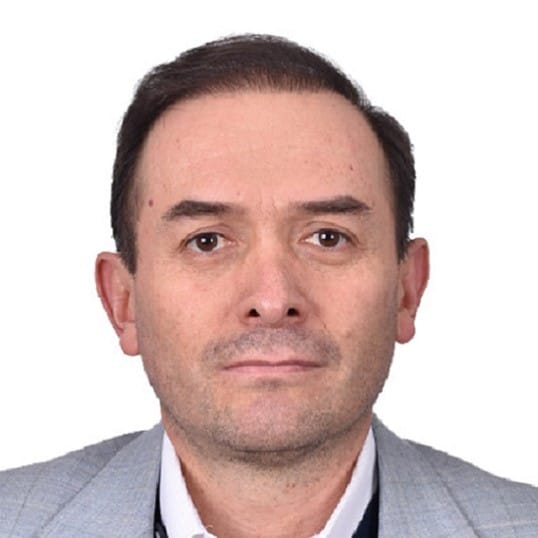
Ruben Jerves Cobo
Associate Professor and Water-Soil Researcher
Water
14 February, 10:30 - 12:00 BRT (Rio de Janeiro)
14 February, 14:30 - 16:00 CET (Brussels)
14 February, 14:30 - 16:00 WAT (Nigeria)
14 February, 15:30 - 17:00 SAST (Cape Town)
14 February, 08:30 - 10:00 EST (New York)
14 February, 22:30 - 00:00 KST (Seoul)
14 February, 21:30 - 23:00 CST (Beijing)
14 February, 19:00 - 20:30 IST (New Delhi)
14 February, 17:30 - 19:00 GST (Dubai)
Deep dive session: Risks to health from pollutants, pathogens, and emerging contaminants in water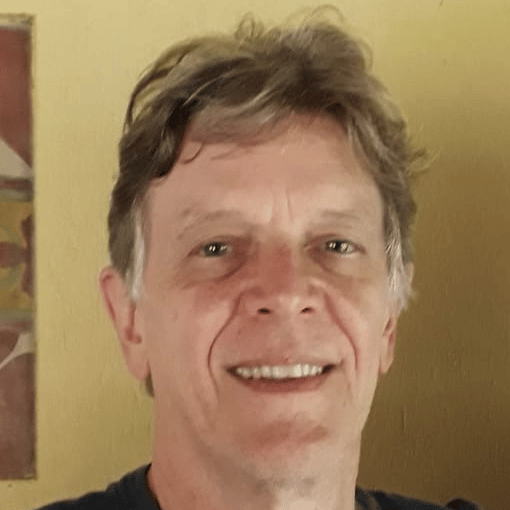
Rafael Kopschitz Xavier Bastos
Academic researcher
Water
14 February, 10:30 - 12:00 BRT (Rio de Janeiro)
14 February, 14:30 - 16:00 CET (Brussels)
14 February, 14:30 - 16:00 WAT (Nigeria)
14 February, 15:30 - 17:00 SAST (Cape Town)
14 February, 08:30 - 10:00 EST (New York)
14 February, 22:30 - 00:00 KST (Seoul)
14 February, 21:30 - 23:00 CST (Beijing)
14 February, 19:00 - 20:30 IST (New Delhi)
14 February, 17:30 - 19:00 GST (Dubai)
Deep dive session: Risks to health from pollutants, pathogens, and emerging contaminants in water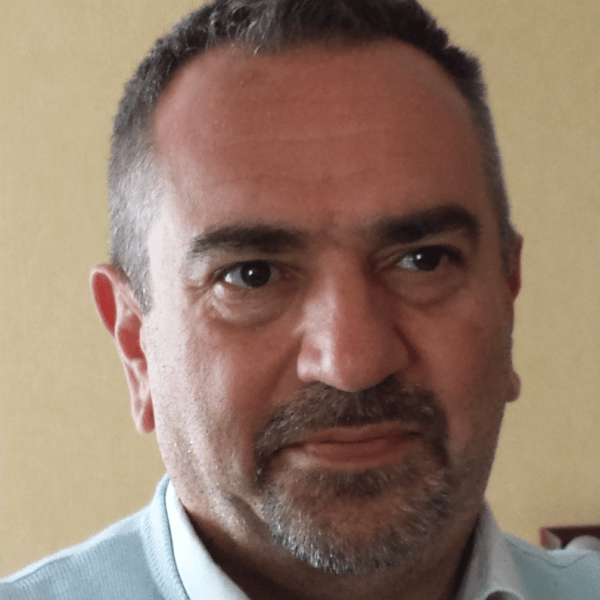
Antonio Lo Porto
EU delegation
Water
13 February, 15:00 - 16:15 BRT (Rio de Janeiro)
13 February, 19:00 - 20:15 CET (Brussels)
13 February, 19:00 - 20:15 WAT (Nigeria)
13 February, 20:00 - 21:15 SAST (Cape Town)
13 February, 13:00 - 14:15 EST (New York)
13 February, 03:00 - 04:15 KST (Seoul)
13 February, 02:00 - 03:15 CST (Beijing)
13 February, 23:30 - 00:45 IST (New Delhi)
13 February, 22:00 - 23:15 GST (Dubai)
Plenary session: Human right to water, sanitation and hygiene (WASH) – Barriers and solutions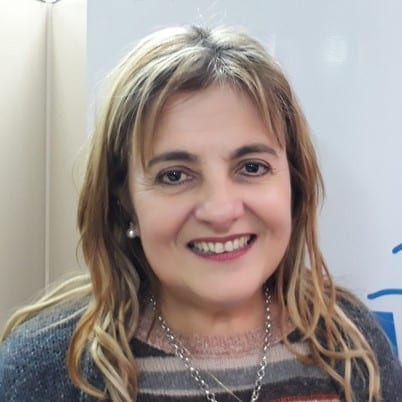
Sara López
General Director
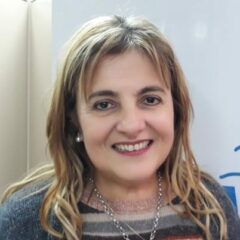
Water
14 February, 09:00 - 10:15 BRT (Rio de Janeiro)
14 February, 13:00 - 14:15 CET (Brussels)
14 February, 13:00 - 14:15 WAT (Nigeria)
14 February, 14:00 - 15:15 SAST (Cape Town)
14 February, 07:00 - 08:15 EST (New York)
14 February, 21:00 - 22:15 KST (Seoul)
14 February, 20:00 - 21:15 CST (Beijing)
14 February, 17:30 - 18:45 IST (New Delhi)
14 February, 16:00 - 17:15 GST (Dubai)
Deep dive session: Sustainable WASH in peri-urban and rural areas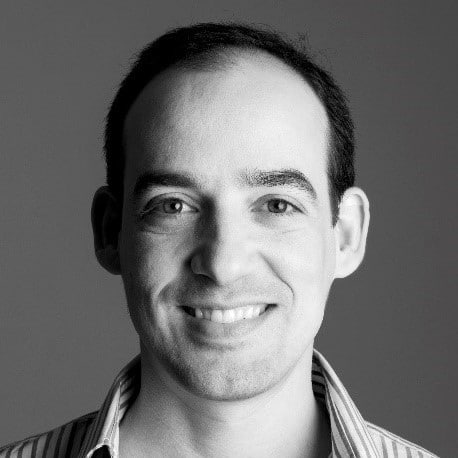
Cesar Mota
Associate Professor in the Department of Sanitary and Environmental Engineering
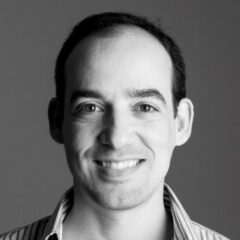
Water
14 February, 10:30 - 12:00 BRT (Rio de Janeiro)
14 February, 14:30 - 16:00 CET (Brussels)
14 February, 14:30 - 16:00 WAT (Nigeria)
14 February, 15:30 - 17:00 SAST (Cape Town)
14 February, 08:30 - 10:00 EST (New York)
14 February, 22:30 - 00:00 KST (Seoul)
14 February, 21:30 - 23:00 CST (Beijing)
14 February, 19:00 - 20:30 IST (New Delhi)
14 February, 17:30 - 19:00 GST (Dubai)
Deep dive session: Risks to health from pollutants, pathogens, and emerging contaminants in water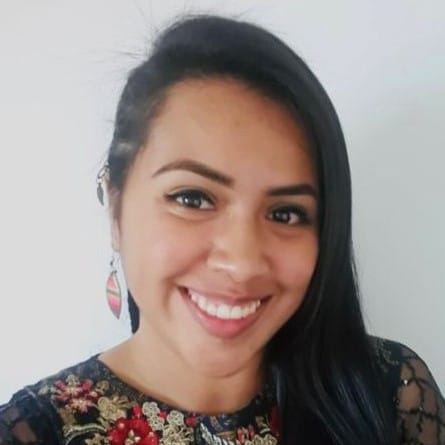
Joyce Najm Mendez
Water
14 February, 10:30 - 12:00 BRT (Rio de Janeiro)
14 February, 14:30 - 16:00 CET (Brussels)
14 February, 14:30 - 16:00 WAT (Nigeria)
14 February, 15:30 - 17:00 SAST (Cape Town)
14 February, 08:30 - 10:00 EST (New York)
14 February, 22:30 - 00:00 KST (Seoul)
14 February, 21:30 - 23:00 CST (Beijing)
14 February, 19:00 - 20:30 IST (New Delhi)
14 February, 17:30 - 19:00 GST (Dubai)
Deep dive session: Risks to health from pollutants, pathogens, and emerging contaminants in water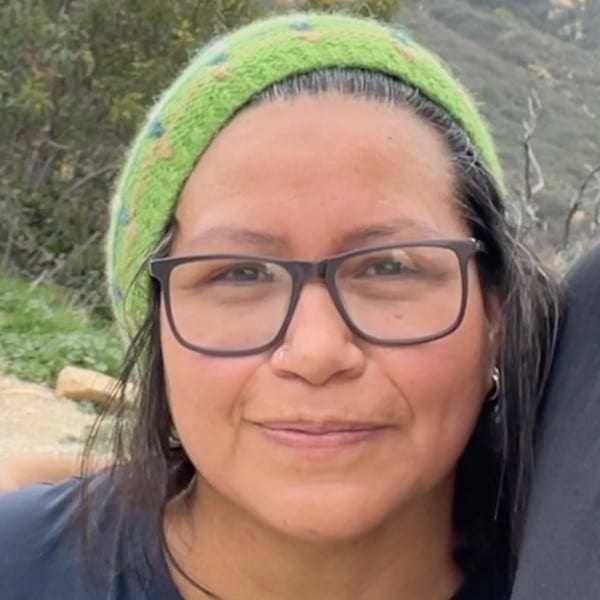
Marcela Olivera
Coordinator
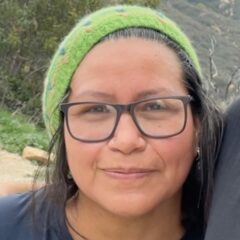
Water
13 February, 15:00 - 16:15 BRT (Rio de Janeiro)
13 February, 19:00 - 20:15 CET (Brussels)
13 February, 19:00 - 20:15 WAT (Nigeria)
13 February, 20:00 - 21:15 SAST (Cape Town)
13 February, 13:00 - 14:15 EST (New York)
13 February, 03:00 - 04:15 KST (Seoul)
13 February, 02:00 - 03:15 CST (Beijing)
13 February, 23:30 - 00:45 IST (New Delhi)
13 February, 22:00 - 23:15 GST (Dubai)
Plenary session: Human right to water, sanitation and hygiene (WASH) – Barriers and solutions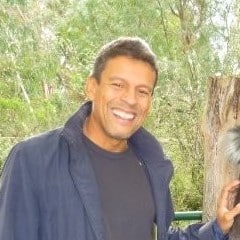
Miguel Peña-Varon
Professor Environmental Science & Engineering
Water
14 February, 09:00 - 10:15 BRT (Rio de Janeiro)
14 February, 13:00 - 14:15 CET (Brussels)
14 February, 13:00 - 14:15 WAT (Nigeria)
14 February, 14:00 - 15:15 SAST (Cape Town)
14 February, 07:00 - 08:15 EST (New York)
14 February, 21:00 - 22:15 KST (Seoul)
14 February, 20:00 - 21:15 CST (Beijing)
14 February, 17:30 - 18:45 IST (New Delhi)
14 February, 16:00 - 17:15 GST (Dubai)
Deep dive session: Sustainable WASH in peri-urban and rural areas
Alexandre Pessoa Dias
Sanitary engineer and researcher

Water
13 February, 15:00 - 16:15 BRT (Rio de Janeiro)
13 February, 19:00 - 20:15 CET (Brussels)
13 February, 19:00 - 20:15 WAT (Nigeria)
13 February, 20:00 - 21:15 SAST (Cape Town)
13 February, 13:00 - 14:15 EST (New York)
13 February, 03:00 - 04:15 KST (Seoul)
13 February, 02:00 - 03:15 CST (Beijing)
13 February, 23:30 - 00:45 IST (New Delhi)
13 February, 22:00 - 23:15 GST (Dubai)
Plenary session: Human right to water, sanitation and hygiene (WASH) – Barriers and solutions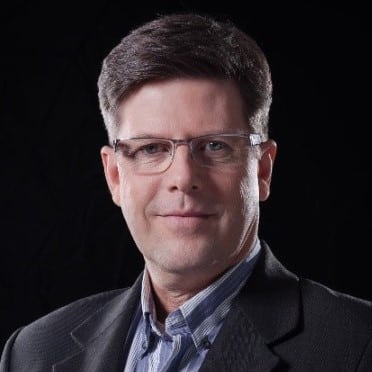
Ariel Scheffer Da Silva (TBC)
Head Environmental Management
Water
13 February, 13:30 - 14:45 BRT (Rio de Janeiro)
13 February, 17:30 - 18:45 CET (Brussels)
13 February, 17:30 - 18:45 WAT (Nigeria)
13 February, 18:30 - 19:45 SAST (Cape Town)
13 February, 11:30 - 12:45 EST (New York)
13 February, 01:30 - 02:45 KST (Seoul)
13 February, 00:30 - 01:45 CST (Beijing)
13 February, 22:00 - 23:15 IST (New Delhi)
13 February, 20:30 - 21:45 GST (Dubai)
Special session: Water-Energy-Food Nexus – The one way towards sustainable development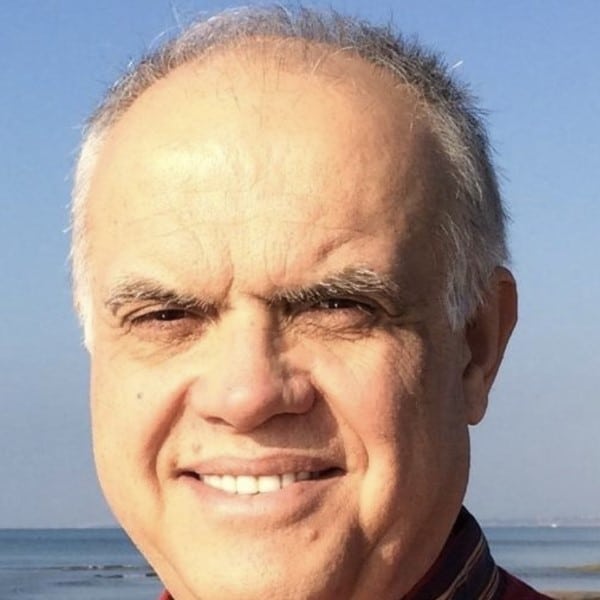
Olcay Ünver
Water
13 February, 13:30 - 14:45 BRT (Rio de Janeiro)
13 February, 17:30 - 18:45 CET (Brussels)
13 February, 17:30 - 18:45 WAT (Nigeria)
13 February, 18:30 - 19:45 SAST (Cape Town)
13 February, 11:30 - 12:45 EST (New York)
13 February, 01:30 - 02:45 KST (Seoul)
13 February, 00:30 - 01:45 CST (Beijing)
13 February, 22:00 - 23:15 IST (New Delhi)
13 February, 20:30 - 21:45 GST (Dubai)
Special session: Water-Energy-Food Nexus – The one way towards sustainable development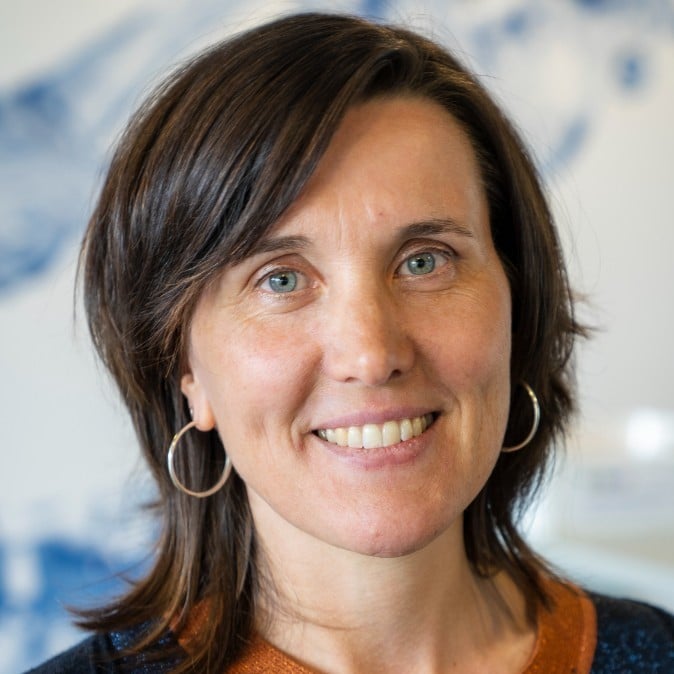
Katrien Van Hooydonk
Project Lead Strategic Partnerships and Internationalisation
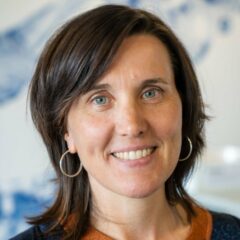
Water
13 February, 13:30 - 14:45 BRT (Rio de Janeiro)
13 February, 17:30 - 18:45 CET (Brussels)
13 February, 17:30 - 18:45 WAT (Nigeria)
13 February, 18:30 - 19:45 SAST (Cape Town)
13 February, 11:30 - 12:45 EST (New York)
13 February, 01:30 - 02:45 KST (Seoul)
13 February, 00:30 - 01:45 CST (Beijing)
13 February, 22:00 - 23:15 IST (New Delhi)
13 February, 20:30 - 21:45 GST (Dubai)
Special session: Water-Energy-Food Nexus – The one way towards sustainable development13 February, 15:00 - 16:15 BRT (Rio de Janeiro)
13 February, 19:00 - 20:15 CET (Brussels)
13 February, 19:00 - 20:15 WAT (Nigeria)
13 February, 20:00 - 21:15 SAST (Cape Town)
13 February, 13:00 - 14:15 EST (New York)
13 February, 03:00 - 04:15 KST (Seoul)
13 February, 02:00 - 03:15 CST (Beijing)
13 February, 23:30 - 00:45 IST (New Delhi)
13 February, 22:00 - 23:15 GST (Dubai)
Plenary session: Human right to water, sanitation and hygiene (WASH) – Barriers and solutions14 February, 10:30 - 12:00 BRT (Rio de Janeiro)
14 February, 14:30 - 16:00 CET (Brussels)
14 February, 14:30 - 16:00 WAT (Nigeria)
14 February, 15:30 - 17:00 SAST (Cape Town)
14 February, 08:30 - 10:00 EST (New York)
14 February, 22:30 - 00:00 KST (Seoul)
14 February, 21:30 - 23:00 CST (Beijing)
14 February, 19:00 - 20:30 IST (New Delhi)
14 February, 17:30 - 19:00 GST (Dubai)
Deep dive session: Risks to health from pollutants, pathogens, and emerging contaminants in water
Associate Director

Coordinator of Transmissable Diseases and Environmental Determinants of Health

Specialist

R&D Engineer Water

Professor in the Urban and Environment Department

Student

International Business Development Manager for Environmental Research and Consultancy Projects

Coordinator, Water Security

Professor of Environmental Engineering

Former Assistant Director

Researcher, René Rachou Institute

Secretary

Resident Representative of the Belgian Development Agency in Mozambique and South Africa

Associate Professor and Water-Soil Researcher

Academic researcher

EU delegation

General Director

Associate Professor in the Department of Sanitary and Environmental Engineering


Coordinator

Professor Environmental Science & Engineering

Sanitary engineer and researcher

Head Environmental Management


Project Lead Strategic Partnerships and Internationalisation

